

Travelling or Traveling: What’s the Difference?
Home » Travelling or Traveling: What’s the Difference?
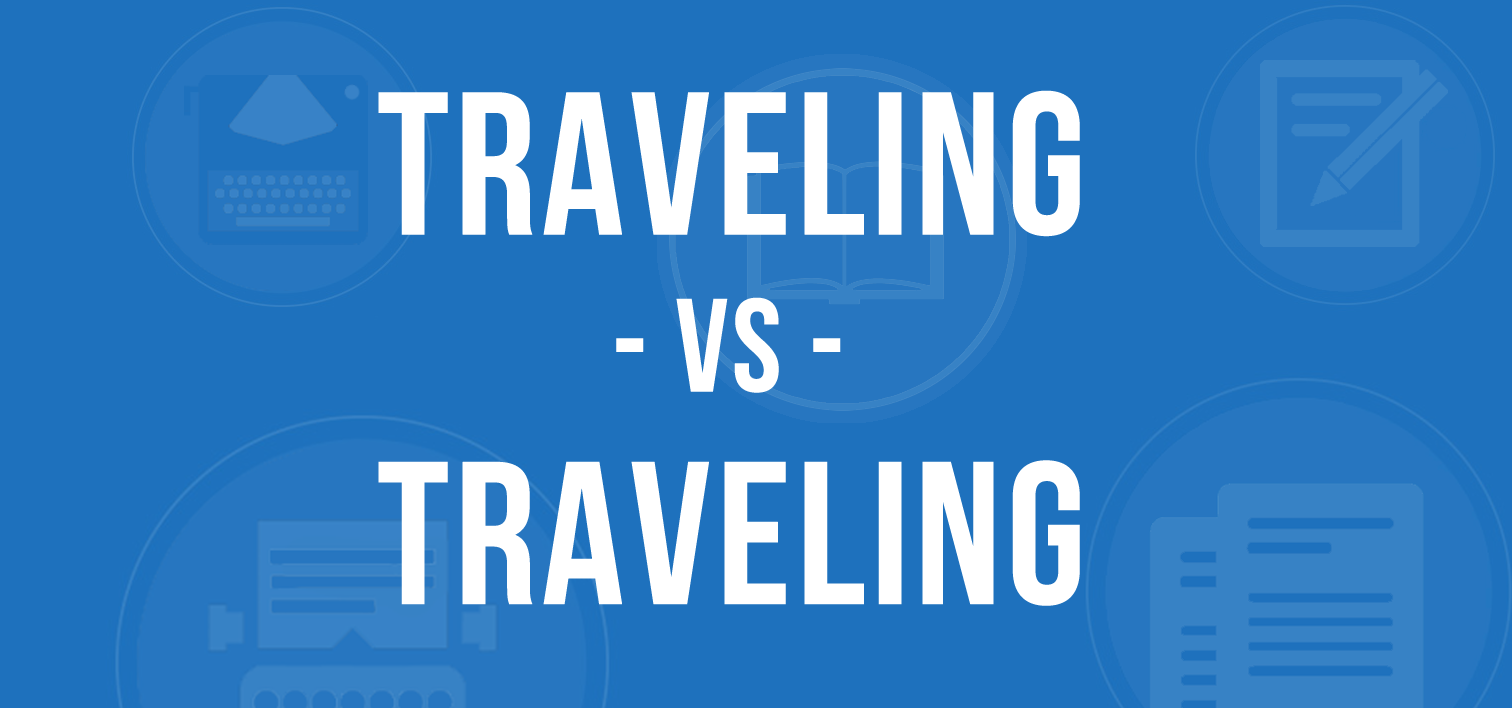
Are you taking a trip anytime soon? If so, where will you be traveling? Or is it travelling? How exactly do you spell this word?
The two words traveling and travelling can cause some confusion for those writers not exactly sure when to use which one. Are they just variations of the same word? Do they have different meanings? Do they function differently in a sentence?
In today’s post, I want to address all of these questions so you will never again wonder or second-guess yourself, “Is it travelling or traveling?”
The Difference Between Travelling and Traveling
Travelling and traveling are both verbs, obviously. To travel is to go from one place to another, as on a trip or journey. For example,

- When the traveling pub is taken off a trailer and put together in a lot near Milwaukee and California avenues, it will boast 400 feet of bar space. – Chicago Sun Times
- They travelled 5,000 miles from Myanmar to place a plaque in Seagrim’s native village of Whissonsett in eastern England. – Washington Post
- Under that analysis, completion of the mobility plan would result in about 35 million miles per day being traveled on L.A. surface streets in 2035. – L.A. Times
You’re probably still thinking, “Okay, I still don’t know how to use these words.”
The difference between traveling vs. travelling isn’t much of a difference at all, really.
In fact, the difference between them is entirely dialectal. There is no demonstrable difference of sense or function, meaning both words can be used interchangeably.
When to Use Travelling
Even though the only thing separating travelling and traveling is a dialectical difference, it is still important to keep your audience in mind when picking which word to use and when.
Travelling (with two Ls) is the preferred spelling in British English and is used much more frequently than is traveling . The graph below shows the use of travelling vs. traveling (as a percentage of all words used) in British English books, journals, and magazines from 1800 to 2008.
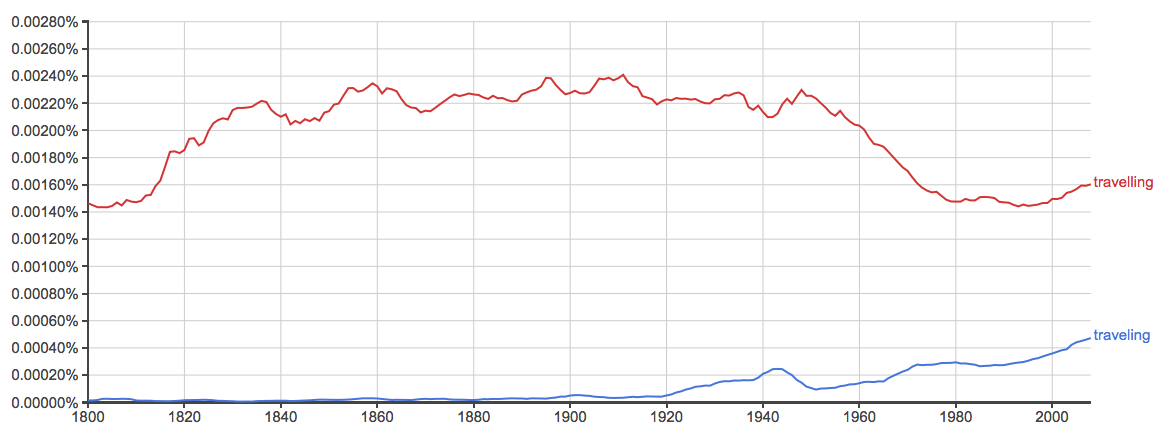
As you can see, travelling (with two Ls) clearly dominates in British English, being used at a rate of about 4:1.
Now, if we look at the same two words over the same time period but limit our search to American print sources, the results completely flip.
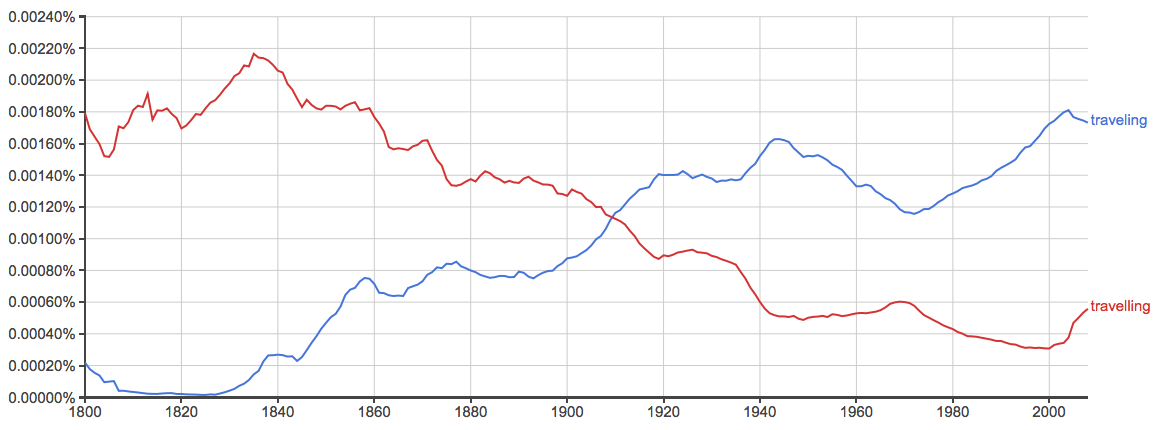
There’s actually a bigger gap between traveling and travelling in American English than there is in British English.
When to Use Traveling
As indicated in the above graph, traveled (with one L) is the preferred spelling in American English.
I’ve discussed the reason for the popularity of many shortened spellings in American English in other posts ( cancelled/canceled comes to mind ), but the basic reason stems back to Noah Webster himself.
He is usually credited with the shortening of many American spellings because in his original 1898 dictionary, he sought to simplify many British spellings he saw as unnecessary. This is where the British-American divide over words like color/colour came from.
Anyway, the point is, if you are writing to an American audience, traveling (with one L) is your best choice.
Remember the Difference – Traveling or Travelling?
One simple way to keep track of these two words is that the shorter spelling is American. If you can keep in mind that, generally speaking, British English favors (favours) the longer spelling of words, you will be able to remember the difference between these words.
It is also worthwhile to note that all of the distinctions in this post apply equally to travelled vs. traveled, traveled vs. travelled, traveller vs. traveler, traveler vs. traveller, etc.
Summary – Traveling vs. Travelling
Is it traveling or travelling? That depends on where you are writing and who is your audience.
- Travelling is the preferred spelling in British English.
- Traveling is the preferred spelling in American English.
Whether you’re talking about travelled or traveled or traveller or traveler, these same preferences still apply.
Is it ‘traveling’ or ‘travelling’?
What to Know When it comes to spelling the forms of the verb travel , traveled and traveling are more common in the US, and travelled and travelling are dominant everywhere else.
Spelling is typically clear-cut in modern English: forty unfailingly betrays four ; the sweet treat after dinner is spelled dessert , not desert .
But some words have two forms that appear often enough in edited text to make it clear that something else is going on. And so it is with forms of the verb travel : traveled and travelled , and traveling and travelling .
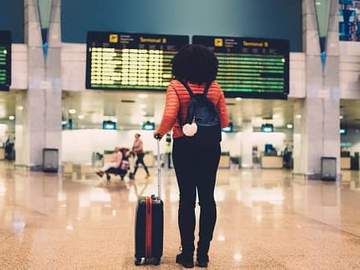
It might have a different spelling wherever you're going.
One or Two L 's?
If you look at where the single l forms originate and where the double l forms originate a pattern emerges: in the United States, traveled and traveling predominate, and everywhere else travelled and travelling are preferred.
The reason mostly comes down to one man we at Merriam-Webster hold especially dear: Noah Webster. Our lexicographical father (brothers George and Charles Merriam bought the rights to Noah Webster’s 1841 dictionary after Webster died) was a great believer in spelling reform and wanted English spelling to make more sense—and if the English of his homeland had more logic to it than its British parent, so much the better. He decided that travel needed only one l in its past and present participle forms.
Webster’s logic is the reason behind the spelling of canceled and cancelled as well: in the U.S., they have just one l , but elsewhere two l ’s are the norm.
American English Words that Use 2 L 's
Webster didn’t think all double l ’s needed to be reduced to one, however: in cases in which the accent, or emphasis, is on the syllable with the l , two l ’s are preserved: expelled and expelling ; controlled and controlling ; patrolled and patrolling .
Word of the Day
See Definitions and Examples »
Get Word of the Day daily email!
Games & Quizzes

Commonly Confused
'canceled' or 'cancelled', is it 'home in' or 'hone in', the difference between 'race' and 'ethnicity', homophones, homographs, and homonyms, on 'biweekly' and 'bimonthly', grammar & usage, more words you always have to look up, the difference between 'i.e.' and 'e.g.', more commonly misspelled words, plural and possessive names: a guide, commonly misspelled words, pilfer: how to play and win, 8 words with fascinating histories, flower etymologies for your spring garden, 8 words for lesser-known musical instruments, it's a scorcher words for the summer heat.
Have a language expert improve your writing
Run a free plagiarism check in 10 minutes, automatically generate references for free.
- Knowledge Base
- UK vs US English
- Travelling or Traveling | Difference & Example Sentences
Travelling or Traveling | Difference & Example Sentences
Published on 11 August 2022 by Eoghan Ryan . Revised on 6 February 2023.
Travelling and traveling are two different spellings of the present participle of the verb ‘travel’ (and the identical gerund ) meaning ‘move from one place to another’ (typically over a long distance). The spelling tends to vary based on whether you’re writing UK or US English :
- In UK English , ‘travelling’ (double ‘l’) is standard.
- In US English , ‘traveling’ (one ‘l’) is correct.
If you’re travelling / traveling through Central Europe, you should visit Berlin.
Karen likes travelling / traveling by train because she enjoys watching the landscape go by.
Instantly correct all language mistakes in your text
Be assured that you'll submit flawless writing. Upload your document to correct all your mistakes.

Table of contents
‘travelling’ and ‘traveling’ as adjectives, ‘travelled’ or ‘traveled’, other interesting language articles.
Travelling and traveling can also be used as adjectives to describe someone or something that moves from place to place.
The only proofreading tool specialized in correcting academic writing
The academic proofreading tool has been trained on 1000s of academic texts and by native English editors. Making it the most accurate and reliable proofreading tool for students.

Correct my document today
Travelled and traveled are the past forms of the verb ‘travel’. The same spelling distinction applies to these past forms and to the nouns traveller and traveler :
- In UK English , ‘travelled’ and ‘traveller’ are standard.
- In US English , ‘traveled’ and ‘traveler’ are more common.
If you want to know more about commonly confused words , definitions , and differences between US and UK spellings , make sure to check out some of our other language articles with explanations, examples, and quizzes.
Confused words
- Affect vs effect
- Further vs farther
- Loose vs lose
- Whose vs who’s
Definitions
- Bear with me
- Presumptuous
US vs. UK spellings
- Canceled or cancelled
- Dreamt or dreamed
- Gray or grey
- Learnt vs learned
- Theater vs theatre
Cite this Scribbr article
If you want to cite this source, you can copy and paste the citation or click the ‘Cite this Scribbr article’ button to automatically add the citation to our free Reference Generator.
Ryan, E. (2023, February 06). Travelling or Traveling | Difference & Example Sentences. Scribbr. Retrieved 5 August 2024, from https://www.scribbr.co.uk/uk-vs-us/traveling-or-travelling/
Is this article helpful?

Eoghan Ryan
Other students also liked, cancelled or canceled | difference & examples, defence or defense | difference & example sentences, learnt or learned | difference & example sentences.
Is it Traveling or Travelling—Correct Spelling Guide

What is the correct way to spell “traveling?” Can you spell it “travelling” if you want?
To travel the world and visit other countries is often seen as an enjoyable way to spend one’s free time.
But how do you spell “traveling,” the verb form of “travel”?
Don’t search anywhere else; here is everything you need to know about the term “travel.”
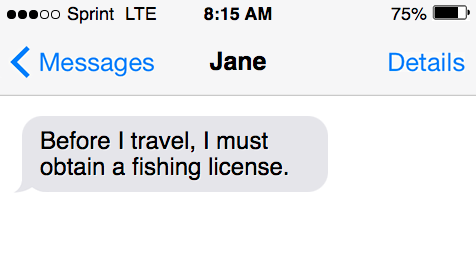
“Traveling” or “travelling”
The difference between the two terms is your audience.
That said, “traveling” is the preferred way to spell the word in the United States.
You will find this correct spelling in the Merriam-Webster dictionary.
However, if your readers are located in the United Kingdom in the Commonwealth , the term is spelled “travelling.”
The subtle distinction of one “L” versus two simply depends on what country you are writing in/for.
Therefore , “travelers” and “traveled” are the U.S. forms, while “travellers” and “travelled” are the UK forms.
No matter the country, the present tense form of the word “travel” is spelled the same and does not require a second “L” at the end.
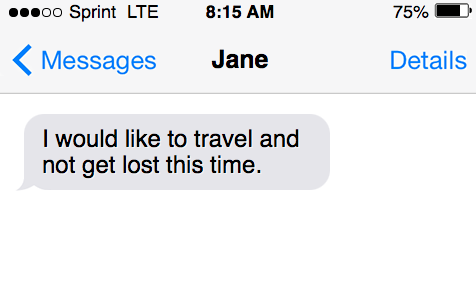
Root word: travel
Travel can serve as a verb or a noun .
As an intransitive verb , “travel” is defined as “To go on a trip or tour to a destination.”
Similarly, as a transitive verb, “travel” is defined as “to journey through or over.”
The definition for “travel” in its noun form is “a journey, especially to a distance or unfamiliar place.”
Be aware that the noun version of the word is often used as a plural.
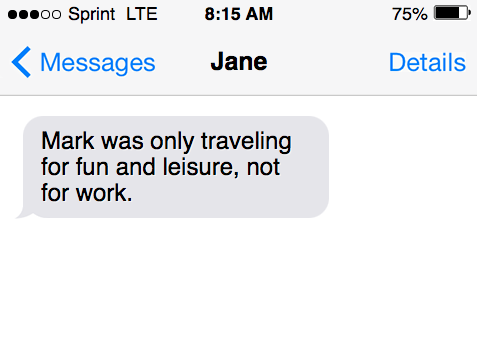
Travelers definition
Another term that comes from “travel” is “traveler” or, in its plural version, “travelers.”
That said, a traveler is commonly referred to as “one that goes on a trip or journey.”
Essentially, “traveler” can be used to describe a person who is taking a trip by car, train, plane, etc.
If subjects in a sentence are going on a journey through different countries or simply to the grocery store, they are “travelers.”

What type of word is “traveling?”
Verbs ending in “-ing” are either present participles or gerunds .
The two styles of words look the same, but their functions in a sentence are different.
Further , present participles can be used in all continuous verb formations ( past , present, future, etc.).
With verbs ending in “-ing,” the helping verb will tell the reader the tense (acting as a link) while the present participles remain unchanged.
Take the below examples, for instance:
- “The boy is watching the trains.”
- “Shelia was waiting for her survey.”
- “My family will be coming to Canada in July.”
- “The group would be moving to Germany if the cost wasn’t an issue.”
- “I would have been picking out my free ice cream flavor by now.”
Intransitive vs. transitive verbs
According to the Merriam-Webster definition, “traveling” can act as both a transitive and intransitive verb .
Transitive verbs will always have a noun that receives the action described by the verb; this noun is called the direct object .
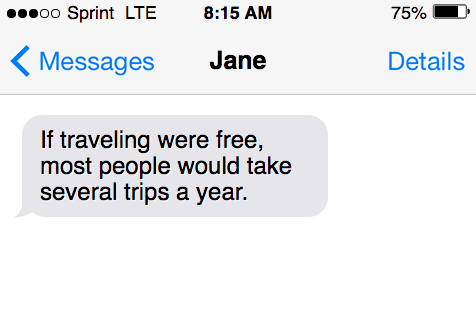
“Tommy lifts the weight.”
In the previous example, “lifts” is the verb and “the weight” is the object receiving the verb’s action.
Therefore, “lifts” is a transitive verb.
On the other hand, intransitive verbs never have a direct or indirect object.
There is no object that receives an intransitive verb’s action.
“The group walks quickly to their destination.”
In this case, the verb is “walks,” and the modifying phrase is “quickly to their destination.”
As you will notice, no object receives the action that “walks” describes.
When to use traveling in writing
Recall that verbs ending in “-ing,” like “traveling,” can be used in the present, future, and past tense.
This present participles rely on the helping verb to indicate the tense of the sentence.
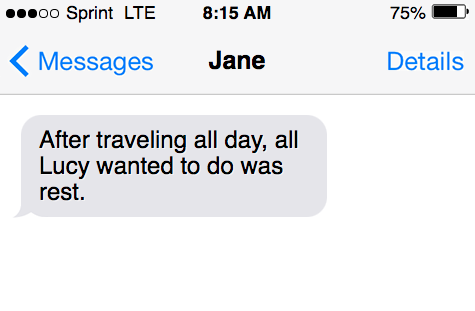
So, you can use the term to say the same thing, just in different tenses .
“He is traveling abroad” can also begin the following ways and still be grammatically correct.
- “He was…”
- “He will be…”
- “He would be…”
- “He would have been…”
You use this term to describe a subject who is, will be, was on their way to a different area than where they came from.
Examples of traveling in a sentence
If you have the correct spelling of the term down but are having a tough time using the term in a sentence, take a look at these sentences.
Using travel/traveling as a verb
- “If traveling were free, most people would take several trips a year.”
- “After traveling all day, all Lucy wanted to do was rest.”
- “I would like to travel and not get lost this time.”
- “Mark was only traveling for fun and leisure, not for work.”
- “All my life, I wanted to travel the world for fun, and now I finally get to!”
- “Before I travel, I must obtain a fishing license.”
Using travel as a noun
“At this time, international travel is banned for safety reasons.”
“He wanted to obtain a free travel license from the site, but the page wouldn’t load.”
“Safety was the top priority for Lisa after she would arrive at her travel excursion.”
“My travels demanded that I use services associated with the train to see my sister.”
“All her life, Katy was never oriented with foreign travel.”
“The new social movement talked about the future of crime and travel in the country.”
“I’d like to use this travel to connect with as many people as possible.”
Why is traveling commonly misspelled?
Why does “traveling” have two different ways of spelling the term?
Most of this is credited to Noah Webster , one link of the famous dictionary we frequently use today.
As a lexicographer and linguist, Webster influenced American English more than most people realize.
That said, he preferred the shorter version of most words that had multiple different ways of spelling.
After including the shorter version of terms in his dictionary, these words became dominant in the United States.
The rest of the English-speaking countries out there preferred the longer spellings of terms.
That said, countries like Australia, Canada, and the UK spell the term “travelling” with two “L”s instead of one.
How to remember which word to use
In the case of the present participle version of “travel,” remember that shorter is better.
“Travelling” is the proper spelling in British English.
So, if that is your audience, use that version.
However, American English demands the spelling “traveling.”
External links to sources
- Present participles: The -ing forms – EF.edu
- Traveler definition – Merriam-Webster
- Verb Tenses – Grammarly
- Types of Verbs – UVU.edu
- Travel definition – Merriam-Webster
- Traveling or Travelling? – Grammarly
- Noah Webster | American lexicographer | Britannica
- lexicographer – definition and examples – ThoughtCo
Inside this article
Fact checked: Content is rigorously reviewed by a team of qualified and experienced fact checkers. Fact checkers review articles for factual accuracy, relevance, and timeliness. Learn more.

About the author
Dalia Y.: Dalia is an English Major and linguistics expert with an additional degree in Psychology. Dalia has featured articles on Forbes, Inc, Fast Company, Grammarly, and many more. She covers English, ESL, and all things grammar on GrammarBrain.
Core lessons
- Abstract Noun
- Accusative Case
- Active Sentence
- Alliteration
- Adjective Clause
- Adjective Phrase
- Adverbial Clause
- Appositive Phrase
- Body Paragraph
- Compound Adjective
- Complex Sentence
- Compound Words
- Compound Predicate
- Common Noun
- Comparative Adjective
- Comparative and Superlative
- Compound Noun
- Compound Subject
- Compound Sentence
- Copular Verb
- Collective Noun
- Colloquialism
- Conciseness
- Conditional
- Concrete Noun
- Conjunction
- Conjugation
- Conditional Sentence
- Comma Splice
- Correlative Conjunction
- Coordinating Conjunction
- Coordinate Adjective
- Cumulative Adjective
- Dative Case
- Declarative Statement
- Direct Object Pronoun
- Direct Object
- Dangling Modifier
- Demonstrative Pronoun
- Demonstrative Adjective
- Direct Characterization
- Definite Article
- Doublespeak
- Equivocation Fallacy
- Future Perfect Progressive
- Future Simple
- Future Perfect Continuous
- Future Perfect
- First Conditional
- Gerund Phrase
- Genitive Case
- Helping Verb
- Irregular Adjective
- Irregular Verb
- Imperative Sentence
- Indefinite Article
- Intransitive Verb
- Introductory Phrase
- Indefinite Pronoun
- Indirect Characterization
- Interrogative Sentence
- Intensive Pronoun
- Inanimate Object
- Indefinite Tense
- Infinitive Phrase
- Interjection
- Intensifier
- Indicative Mood
- Juxtaposition
- Linking Verb
- Misplaced Modifier
- Nominative Case
- Noun Adjective
- Object Pronoun
- Object Complement
- Order of Adjectives
- Parallelism
- Prepositional Phrase
- Past Simple Tense
- Past Continuous Tense
- Past Perfect Tense
- Past Progressive Tense
- Present Simple Tense
- Present Perfect Tense
- Personal Pronoun
- Personification
- Persuasive Writing
- Parallel Structure
- Phrasal Verb
- Predicate Adjective
- Predicate Nominative
- Phonetic Language
- Plural Noun
- Punctuation
- Punctuation Marks
- Preposition
- Preposition of Place
- Parts of Speech
- Possessive Adjective
- Possessive Determiner
- Possessive Case
- Possessive Noun
- Proper Adjective
- Proper Noun
- Present Participle
- Quotation Marks
- Relative Pronoun
- Reflexive Pronoun
- Reciprocal Pronoun
- Subordinating Conjunction
- Simple Future Tense
- Stative Verb
- Subjunctive
- Subject Complement
- Subject of a Sentence
- Sentence Variety
- Second Conditional
- Superlative Adjective
- Slash Symbol
- Topic Sentence
- Types of Nouns
- Types of Sentences
- Uncountable Noun
- Vowels and Consonants
Popular lessons

Stay awhile. Your weekly dose of grammar and English fun.

The world's best online resource for learning English. Understand words, phrases, slang terms, and all other variations of the English language.
- Abbreviations
- Editorial Policy
Grammarflex

“Traveling” or “Travelling” (Which Spelling is Correct?)
- February 12, 2024

Traveling or travelling?
The verb travel , which is to “go from one place to another, especially over a long distance”, uses different spellings based on UK English and US English:
- British English spells “ travelling ” with the double “L”.
- American English spells “ traveling ” with one “L”.
The same goes with other verb forms of “travel” in the past tense i.e., traveled and travelled ; or as a noun, traveler and traveller .
Other words (like traveling or travelling)
Word forms of travel.
Other verb/noun forms also conform to the same spelling rules based on US/UK English:
Sentences with traveling/traveling (present participle)
The travelling / traveling public have had enough of fare increases.
She grew up in a travelling / traveling family.
The birds are travelling / traveling south for the winter.
She enjoys travelling / traveling around Europe.
Sentences with traveled/travelled (past tense)
They travelled / traveled cross-country from New York to California.
The pain travelled / traveled down his back.
They travelled / traveled on the bus to and from work together.
Synonyms of travel
- peregrinate (to travel especially on foot)
Phrases with travel
- travel light
- travel-sick/travel sickness
- travel agent or agency
Origin of the word travel
Etymonline on travel :
Late 14c., “to journey,” from travailen (1300) “to make a journey,” originally “to toil, labor”. Replaced Old English faran . Related: Traveled ; traveling . Traveled (adj.) “having made journeys, experienced in travel” is from early 15c. Traveling salesman is attested from 1885. —Etymonline, travel.
Read more about US English vs. UK English
- Harper, Douglas. “Etymology of humor.” Online Etymology Dictionary, Accessed 12 February, 2024.
- “Peregrinate.” Merriam-Webster.com Dictionary, Merriam-Webster, https://www.merriam-webster.com/dictionary/peregrinate . Accessed 12 Feb. 2024.
Recent Posts

Is it Nerve-Racking, Nerve-Wrecking or Nerve-Wracking?
Which is correct: nerve-wracking or nerve-racking? To describe something as extremely irritating, annoying, or trying; (as in, a nerve-racking day; or a nerve-racking noise), we

“Beck and Call” or “Beckon Call”? Which is Correct?
Meaning of ‘beck and call’ ‘To be at someone’s beck and call‘ is an idiomatic expression that describes being immediately available, or ready to be

What’s the Meaning of the Word “Connotation”?
Ever catch bad vibes from a text? Any feeling or internal response you have from the actual words used to is its connotation; which perhaps

What’s the Difference Between Ambiguous & Ambivalent?
Are ambiguous and ambivalent the same? Something ambiguous (an adjective) is unclear, vague and open to different interpretations. To be ambivalent (also an adjective) means

When to Use Have or Had? (Explained with Examples)
When should you use “have” or “had”? When is it correct to use have, has, or had? Phrased differently, what’s the past tense of have?

What’s the Past Participle? (Explanation & Usage)
The past participle is a form of a verb that can appear as an adjective, or be used to form specific tenses and the passive

Emigrate vs. Immigrate (Meaning + Examples)
Meaning of emigrate vs. immigrate To immigrate is the verb form of the noun immigrant; referring to someone that’s moved away from their birth country

Recurring vs. Reoccurring (Correct Usage, + Examples)
Did you have a recurring or reoccurring dream? If you’re finding the difference between these two words befuddling, then this post is for you. How

What’s the Difference Between Nevertheless vs. Nonetheless?
Nevertheless vs. nonetheless Nevertheless and nonetheless are synonyms that both belong to the same part of speech; i.e, they’re compound adverbs that express contrast. There
Traveling or Travelling – Which Is Correct?
Marcus Froland
March 28, 2024
Ever found yourself pausing mid-sentence, pen hovering over the page or fingers stalled on the keyboard, wondering if it’s “traveling” or “travelling”? You’re not alone. This common conundrum trips up many of us, sowing seeds of doubt every time we try to jot down our adventures or share tales of our journeys. It’s a tiny difference, just one letter, but it holds the power to make us second-guess ourselves.
The truth is, both spellings are correct — but there’s a catch. The choice between them isn’t as arbitrary as it might seem; it hinges on something you might not have considered. And no, we’re not going to spill the beans just yet. By the end of this article, you’ll not only know which spelling to use when but also understand why it matters more than you might think.
When it comes to writing the word for moving from one place to another, both “traveling” and “travelling” are correct. The difference lies in where you are or who your audience is. In the United States , people prefer to use one ‘l’, making it “traveling”. However, in countries like the United Kingdom, Canada, and Australia , adding an extra ‘l’ is the norm, so it’s “travelling”. This variation is because of different spelling rules in American and British English. So, next time you write about your adventures, remember to consider who will be reading it. If your readers are mainly from the U.S., go with “traveling”. If they’re from other English-speaking parts of the world, “travelling” might be more appropriate.
The American and British Spelling Dilemma
The unique paths of language development and educational standards in the United States and the United Kingdom contribute to the spelling variations witnessed in American vs. British English . One such example is the difference in spelling of the word “traveling” in American English and “travelling” in British English. While these discrepancies might appear minor, they play a significant role in the localization of written content and reflect the cultural influences in each variant of the English language.
At the heart of the American and British spelling dilemma is the influence of Noah Webster, an American lexicographer, grammarian, and language reformer who advocated for a simplified spelling system that distinguishes American English from British English. His efforts resulted in several modifications, including changes to the way “traveling/travelling” and related words are spelled.
Let’s take a closer look at the spelling differences between American and British English:
These spelling variations can be attributed to the language discrepancies , which impact not only the spelling of individual words but also the English spelling rules that govern written communication in both American and British English.
“As an American, I may spell the word ‘traveling’ with a single ‘l,’ but my friends from the United Kingdom insist on using the double ‘l’ spelling of ‘travelling.’ It’s fascinating to see the impact of cultural and historical factors on our language usage.”
To understand and appreciate the diverse nature of the English language and its spelling conventions , it’s essential to explore the factors that contributed to the divergence between American and British English. By familiarizing yourself with these variations, you can better cater your written content to different audiences and ensure the appropriate use of language.
Understanding the Spelling Discrepancy: A Historical Perspective
The spelling discrepancy between “traveling” and “travelling” has its roots in the English language history and the linguistic evolution that occurred as American and British English took different paths. Noah Webster, a renowned American lexicographer, greatly influenced the development of American English spelling conventions with his advocacy for spelling reform.
Some of these reforms included reducing double consonants to a single consonant in certain words, such as changing “travelling” to “traveling,” in an effort to simplify and differentiate American English from its British counterpart. This linguistic change had a lasting impact on the spelling of numerous words in American English, including “traveler” instead of “traveller” and “canceled” instead of “cancelled.”
“Language is the expression of ideas, and if the people of one country cannot preserve an identity of ideas, they cannot retain an identity of language.”
Noah Webster
In addition to simplifying spellings, Webster sought to create a distinct American linguistic identity that would set it apart from British English. His dictionary, An American Dictionary of the English Language , was published in 1828 and became a standard reference for American English.
- Historical Influences : American and British English evolved differently due to geopolitical factors, such as political separation and cultural influences.
- Spelling Reforms : Noah Webster sought to differentiate and simplify American English spellings, including changing double consonants to a single consonant, e.g., “travelling” to “traveling.”
- Webster’s Dictionaries : Webster’s dictionary publications helped spread his spelling ideologies, playing a crucial role in shaping American English spelling conventions .
By understanding the historical underpinnings and the reasons behind spelling discrepancies like “traveling” versus “travelling,” writers can make informed decisions on which spelling to use based on their audience and the regional linguistic preferences. The legacy of Noah Webster’s influence on American English continues to thrive, as seen in the American English spelling conventions employed today.
The Grammar Behind “Traveling” and “Travelling”
Understanding the difference between American and British English spelling conventions when it comes to multisyllabic words like “traveling” and “travelling” is essential for writers across the globe. In this section, we will dive into the grammar rules that determine final consonant doubling , stress pattern rules , and suffix addition rules in both American and British English.
When to Double the Final Consonant in American English
In American English, the general rule for doubling the final consonant when adding a suffix depends on whether the ending syllable is stressed or not. If the final syllable of a word is stressed and it ends in a vowel followed by a consonant, the consonant is usually doubled. However, since the stress in “travel” is on the first syllable, the ‘l’ is not doubled when adding a suffix. This results in the American English spelling “traveling.”
The Rule of Thumb for Multisyllabic Words
In both American and British English, the stress pattern of a multisyllabic word can determine the spelling when suffixes are added. For words like “travel,” where the stress is on the first syllable, American English does not double the ‘l’, while British English often doubles the ‘l’, resulting in the spelling “travelling”.
In many multisyllabic words , the stressed syllable can determine the final consonant doubling when suffixes are added.
Applying the Correct Suffix in American vs. British English
Whether to apply one ‘l’ or two when adding suffixes to “travel” depends on the variant of English being used. The American English convention follows the rule of non-doubling for non-stressed ending syllables, favoring “traveling” over “travelling,” which is prevalent in British English. This difference in suffix application is an essential aspect of dialect-specific spelling conventions.
By understanding the grammar rules behind final consonant doubling , stress pattern rules , and suffix addition rules , you can ensure that your writing aligns with the correct spelling conventions, whether working with American or British English.
Geographical Spelling Preferences for “Traveling”
The spelling of “traveling” and “travelling” varies considerably based on the geographical region, resulting in regional spelling differences and local language preferences . To put it simply, “traveling” with one ‘l’ is predominantly used in American English, whereas “travelling” with double ‘l’s is generally preferred in the UK, Commonwealth countries, and other parts of the world influenced by British English norms.
It’s crucial to comprehend these geographical linguistic variations in order to communicate effectively and respectfully with diverse audiences. Using the appropriate spelling for each regional audience can help establish a connection with readers and prevent misunderstandings or misconceptions. To give you a clearer understanding, let’s explore the different variations of “traveling” or “travelling” and their respective geographical preferences.
As you can see, the geographical location of your audience plays a key role in determining which spelling variation to use. In the age of globalization, it is up to you to be mindful of these regional spelling preferences and adapt your writing accordingly to create a clear, consistent, and engaging message for your readers.
Becoming aware of regional spelling differences , local language preferences , and geographical linguistic variations is essential for effective communication and achieving success in the world of writing.
“Traveling” or “Travelling” in Professional Writing
In professional writing, maintaining consistency in language use across different English-speaking countries is crucial. Whether you spell it “traveling” or “travelling” depends on the target audience and their regional language preferences. For example, American English speakers will expect “traveling,” whereas an audience in the UK and other parts of the world influenced by British English will be more accustomed to “travelling.”
Consistency in Language Use Across Different English-Speaking Countries
Maintaining consistency in spelling and grammar is essential in ensuring that your writing is polished and professional. Being aware of international English variations enables you to adapt your writing style to various audiences. To demonstrate the importance of adapting to different language preferences, consider the following table:
As showcased in the table, spelling variations differ across various English-speaking countries. As a writer, it’s crucial to be aware of these differences and tailor your content to suit your audience’s expectations.
Adapting Your Spelling to the Audience
Audience-oriented writing and writing localization are both important factors for success in professional writing. By adapting your spelling and language use to your target audience’s regional preferences, you can better establish credibility and avoid potential confusion. Your readers will appreciate the effort you put forth to ensure your writing is clear and relatable to their own linguistic background.
“The difference between the right word and the almost right word is the difference between lightning and a lightning bug.” – Mark Twain
When submitting work for an international audience, consider the spelling variations and regional language preferences they might have. For instance, a US-based writer submitting work in Australia should opt for “travelling,” aligning with the British English preference, to ensure that the writing resonates well with the local audience.
Staying aware of regional language preferences and maintaining consistency in your writing is essential for successful professional communication. Adapting your spelling to different audiences not only prevents confusion but also demonstrates your attentiveness and dedication to providing tailored content .
Common Usage in Journalism and Literature
In the world of journalism and literature, spelling standards and linguistic preferences play a crucial role in effectively communicating with your target audience. American publications such as The New York Times and Condé Nast Traveler typically use “traveling” with one ‘l’, in line with American English conventions.
On the other hand, British outlets like The Guardian and Bristol Post adhere to British English norms, using “travelling” with two ‘l’s. As a writer, it is essential to be well-versed in these spelling conventions to maintain credibility and fluency in your works. This applies regardless of whether you are writing articles, essays, press releases, or even blog posts.
Understanding the linguistic preferences of your intended audience and tweaking your writing accordingly is not only a sign of cultural awareness but also a mark of professionalism. So, to make a lasting impression and connect with your readers on a deeper level, always pay close attention to the regional spelling differences in words like “traveling” and “travelling” across various media platforms.
Share this:
You May Also Like:
Yea vs. Yeah: What’s the Difference?
Leased vs least homophones spelling & definition, open to or open for: deciphering proper usage with examples, lunchtime or lunch time which is correct, do you use “a” or “an” before acronyms, reef vs wreath – what’s the difference, two minute english.
English Made Simple: Two-Minute Lessons for Busy Learners
Copyright © 2024 • TwoMinEnglish.com

Travelling vs. Traveling: Unraveling the Spelling Mystery
When considering the variance between ‘travelling’ and ‘traveling’, it’s key to recognize that the divergence primarily stems from the variant of English in use. Essentially, this difference is rooted in the linguistic choice between American English and British English. Terms such as ‘travel’, ‘traveled’, ‘traveling’, and similar ones adhere to a straightforward spelling principle that mirrors the English dialect in question. This variation is not about grammatical or semantic distinctions but about the spelling norms of different regions.
The Main Difference between Travelling and Traveling

Travelling vs. Traveling: Key Takeaways
- ‘Travelling’ and ‘traveling’ have the same meaning, differing only in regional spelling conventions.
- American English prefers the spelling with one ‘l’, while British English uses two ‘l’s.
- Awareness of the audience’s form of English can guide the correct usage of these terms.
Travelling vs. Traveling: The Definition
What does travelling mean.
Travelling is the preferred spelling in British English. It refers to the act of moving from one place to another, often for pleasure, business, or other purposes. This variant aligns with other British English spellings that include a double consonant, like ‘cancelled’.
What Does Traveling Mean?
In contrast, Traveling is the standard spelling in American English. The meaning is identical: it denotes the process of journeying from one location to another. American English typically uses a single consonant in such words, hence ‘canceled’ instead of ‘cancelled’.
Travelling vs. Traveling: Usage and Examples
When we discuss the terms “travelling” and “traveling,” we’re really talking about the difference between British and American English spelling. In British English, the word is typically spelled with two ‘l’s— travelling . On the other hand, American English prefers one ‘l,’ thus it’s spelled traveling .
Let’s take a look at some examples to see how each variant is used in a sentence:
- British English: “We have been travelling throughout Europe for a month.”
- American English: “Our favorite pastime is traveling across the United States in our RV.”
Tips to Remember the Difference
When we come across the words “traveling” and “travelling,” it can be a bit puzzling to figure out which one to use. Let’s break down an easy way to remember:
American English primarily uses one ‘l’:
British English favors two ‘l’s:
Travelling vs. Traveling: Examples
Example sentences using travelling.
- We are currently travelling through the Scottish Highlands and encountering breathtaking scenery.
- Our family enjoys travelling ; it’s become an integral part of our lives.
- She will be travelling to several countries as part of her gap year.
- They recommend travelling light to save space for souvenirs and new purchases.
- Due to his job, John is often travelling and has little time to relax at home.
Example Sentences Using Traveling
- We love traveling across the United States in our RV during the summers.
- She is currently traveling on business for a week in New York.
- Our team is traveling to Los Angeles for a conference next month.
- Are you traveling with anyone on your trip to the Grand Canyon?
- His job requires a lot of traveling , mostly to different states for client meetings.
Related Confused Words
Cancelled or Canceled
- Like “travelling,” the British English version doubles the consonant, “cancelled,” while American English uses the singular consonant, “canceled.”
Fulfilling or Fulfilling
- British English doubles the ‘l’, hence “fulfilling,” whereas American English goes with “fulfilling” with one ‘l’.
Labelled or Labeled
- Again, British English doubles the ‘l’ to make “labelled,” while American English prefers “labeled.”
Ageing or Aging
- In British English, it remains “ageing,” with the ‘e’ intact, while American English drops the ‘e’, turning it to “aging.”
Jewellery or Jewelry
- A slightly different change occurs here. “Jewellery” is the British form, with an extra ‘l’ and ‘e’, whereas “jewelry” is the American variant, shorter.
Frequently Asked Questions
Why do some people spell ‘traveling’ with one ‘l’ and others with two?
The spelling difference is primarily due to regional variations. In American English, ‘traveling’ is spelled with one ‘l’, while in British English, it is spelled with two ‘ls’ as ‘travelling’.
Is there a difference in meaning between ‘travelling’ and ‘traveling’ or is it just a matter of spelling?
There is no difference in meaning between ‘travelling’ and ‘traveling’. The difference is strictly in spelling, with ‘traveling’ preferred in American English and ‘travelling’ in British English.
Can you give examples of when to use ‘travelling’ or ‘traveling’ in a sentence?
Certainly! In American English, you would write, “She loves traveling across the country.” In British English, it would be, “She loves travelling across the country.”
How do the British and American English spelling conventions differ for the word ‘travel’?
In addition to ‘traveling/travelling’, British English often doubles the ‘l’ in the words ‘traveled/travelled’ and ‘traveler/traveller’. American English typically uses the single ‘l’ version in these words.
What is the correct pronunciation of ‘travelling/traveling’, and does it differ by region?
The pronunciation of ‘travelling’ and ‘traveling’ is the same in both British and American English. Regional accents and dialects may cause slight variations in pronunciation, but the standard is consistent.
How can I remember whether to use ‘travelling’ or ‘traveling’ when writing an essay or formal document?
A helpful tip is to associate the single ‘l’ in ‘traveling’ with the United States, which also has one ‘l’. For British English, remember the double ‘ll’ in ‘travelling’ as commonly seen in other British spellings.
- Traveled vs. Travelled
- Learnt vs. Learned
- Latest Posts
- Skillset or Skill Set: Clarifying the Difference - March 9, 2024
- Vender or Vendor: What Is the Difference? - February 5, 2024
- Tick vs. Bed Bug: Identifying The Main Difference - February 3, 2024
Travel, Traveled & Travelling – What’s the Difference?
| Candace Osmond
Candace Osmond
Candace Osmond studied Advanced Writing & Editing Essentials at MHC. She’s been an International and USA TODAY Bestselling Author for over a decade. And she’s worked as an Editor for several mid-sized publications. Candace has a keen eye for content editing and a high degree of expertise in Fiction.
Traveling is a pleasant experience. You learn new cultures, meet new people, and taste new food. But is it traveling or travelling ? Is it travelled or traveled ?
Let me tell you that all four spellings are correct. I’ll show you the difference between traveled vs. travelled and traveling vs. travelling in this guide.
Does Travelled Have One or Two Ls?

If you read different writing pieces, you’ll notice that the simple past and participle forms of the verb travel are either traveled or travelled. Both spellings are correct. Therefore, travelled can have one or two Ls.
Traveled, travelled, and traveling come from the el verb travel, which means to go from one place to another. But, as a Canadian who mostly writes for a US audience, I get the confusion.
Traveled vs. Travelled
Now that you know both traveled and travelled are correct, when do you use which?
Traveled is the correct American English spelling. This English variant follows a single L to simplify English words. Other examples of simplified American spellings include humor instead of humour and annex instead of annexe.
Noah Webster of Webster’s Dictionary is a famous person who advocated for traveled instead of travelled . So if you’re American writing for an American audience, let them know you traveled instead of travelled to Europe.
Here are some examples of traveled in a sentence.
- How many miles had they traveled today?
- I traveled to Germany last month.
- The 2022 Rockefeller Center Christmas tree has finally arrived at Rockefeller Plaza in New York City after it was cut down from its home in Queensbury, New York, and traveled 200 miles to the Big Apple. [ Today ]
Travelled is the British English spelling of the word. This English variant with two Ls is the original spelling of the verb. Travelled is also more common worldwide. For instance, Canada uses travelled because it’s one of the British Commonwealth countries.
Here are some examples of travelled in a sentence.
- The famous adventurer travelled around the world.
- He travelled thousands of miles during the presidential campaign.
- Alex Sullivan, an Everton fan who has travelled to Qatar to support England during the World Cup, told talkSPORT that “we were having a good time, enjoying ourselves.” [ Marca ]
Traveling vs. Travelling
The rule for traveling vs. travelling is the same as traveled vs. travelled.
We use traveling as the American English spelling, as the linguist and lexicographer Noah Webster recommended. This significant person preferred shorter versions of words, which many Americans instantly followed.
Here are some examples of traveling in a sentence.
- Rory and I were traveling during her birthday.
- Our traveling expenses were lower than expected.
- While traveling with his wife, Roxana, and his two young sons during the offseason, Ellis concluded that he had soured on many aspects of the NBA grind. [ Washington Post ]
Use travelling as the British, Canadian, and Australian spelling of the present participle form of travel.
Here are some examples of travelling in a sentence.
- I enjoy travelling with my family every summer.
- My travelling companion moved to Oklahoma with her husband.
- As every keen traveller knows, there are a number of checks and research one must undertake before travelling to a new country. [ CN Traveller ]
Travel, Traveled, and Travelling Summary
While travel is a simple and common English word, its derivative forms can be confusing even for the best English writers. But I hope this guide helped you understand the difference between traveled vs. travelled and traveling vs. travelling.
Remember that traveled and traveling with a single L are the American spellings, while travelled and travelling with two Ls are the British and Canadian spellings.
Grammarist is a participant in the Amazon Services LLC Associates Program, an affiliate advertising program designed to provide a means for sites to earn advertising fees by advertising and linking to Amazon.com. When you buy via the links on our site, we may earn an affiliate commission at no cost to you.
2024 © Grammarist, a Found First Marketing company. All rights reserved.

'Travelling' or 'Traveling': What's the Difference Between the Two?

'Travelling' or 'Traveling': two different ways to spell the same word. But which one is correct? The answer is actually pretty simple. Read on to find out.
In short, 'travelling' is the British English spelling, and 'traveling' is the American English spelling.
The Difference Between 'Travelling' or 'Traveling'
Firstly, let's define 'traveling'. Although I'm sure you're familiar with this word, I want to make sure we've covered all our bases. 'Traveling' is the participle tense of the verb 'to travel.' To travel is to take a journey somewhere, sometimes for the purposes of a holiday, other times it might be for a work trip or to visit family.
Back in 1828, Noah Webster, an American lexicographer, published his famous dictionary, "An American Dictionary of the English Language," hoping to standardize American speech. The man was famous for preferring words to be written the way they sounded. That makes sense, right?
So he spent many years editing the spellings of words that came from British English in order to make them look more like they sound. One of the many changes he made was to remove extra letters where he deemed them to be unnecessary. 'Traveling,' 'traveler,' and 'traveled' were among those. Some other words where the spelling was cut short include:
These words all have alternative spellings in British English that are either longer or don't look exactly as the word is pronounced. Take 'mom,' for instance. The Brits spell it 'mum,' which is pretty close to how you pronounce the word, but the spelling with the 'o' is closer to the American accent.
Remember the Difference - 'Traveling' or 'Travelling'?
As a result of his editing, Mr. Webster cut out a lot of unnecessary 'l's. But not all of them. In words where the pronunciation emphasis is on the syllable with the 'l,' two 'l's remain. For example:
- controlling
But do you want to know the simplest way to know which spelling the American one is? When looking at the two same words with different spellings, the American one is usually the shorter one. It's true! Let's look at earlier examples as evidence of this:
- American spelling: color British spelling: colour
- American spelling: canceled British spelling: cancelled
- American spelling: totaled British spelling: totalled
And while this logic doesn't apply to the examples 'center' and 'mom', the logic of spelling the word as it's pronounced does.
Therefore, whether to use 'traveling' or 'travelling' depends on your audience. Are you writing for an American audience? Then use 'traveling.' Are you writing for a British or other Commonwealth audience (Canada, Australia...)? Use 'travelling.'

'Traveling' and 'Travelling': Examples
Now that we're clear on the meaning of the word and which spelling to use when it's time to look at some examples of the word used in a sentence. I'll only use the spelling 'traveling,' but bear in mind that both spellings are interchangeable. I'll also cite some examples that use 'traveled' and 'traveler.'
I haven't seen him in ages; he's been traveling since last year. Last year we traveled to Costa Rica for our honeymoon. A true traveler never arrives. Traveling is one of my favorite pastimes. Have you ever traveled solo? I met a bunch of travelers last night; they're touring Central America.
Concluding Thoughts on 'Traveling'
So there you have it. The difference between 'traveling' and 'travelling' is simply based on where you are based or where your audience is based. Other than that, they mean the exact same thing. So don't sweat it if you're unsure which to use; in any case, both are acceptable. But a good way to remember is that the American spelling is usually the shorter one.
To learn about more confusing words , including American vs. British words, visit our blog . We've covered many commonly misspelled and misunderstood words and will continue to cover many more!
Learn More:
- ‘Center' or 'Centre': What's the Difference?
- 'Tonne' vs 'Ton': What's the Difference Between the Two?
- 'Pass Time' or 'Pastime': What's the Difference Between the Two?
- 'Spoilt' vs 'Spoiled': What's the Difference Between the Two?
- 'Practise' or 'Practice': What's the Difference Between the Two?
- ‘Enquiry' vs 'Inquiry': What's the Difference?
- ‘Aeroplane' vs 'Airplane': What's the Difference?
- 'Autumn' vs 'Fall' What's the Difference?
- 'Cancelled' vs 'Canceled': Which is Correct?
- 'By Jove': Meaning, Definition, Origin
- ‘Loss' vs 'Lost': What's the Difference Between the Two?
- ‘Truly' or 'Truely': What's the Difference Between the Two?
- 'Spelt' or 'Spelled': What's the Difference Between the Two?
- ‘Pyjamas' or 'Pajamas': What's the Difference Between the Two?
- ‘Theatre' vs 'Theater': What's the Difference Between the Two?
We encourage you to share this article on Twitter and Facebook . Just click those two links - you'll see why.
It's important to share the news to spread the truth. Most people won't.
Add new comment Cancel reply
Your email address will not be published. Required fields are marked *
Save my name, email, and website in this browser for the next time I comment.
Post Comment


Traveling vs. Travelling: What’s the Difference?
“Traveling” and “travelling” are both correct. The former is the preferred spelling in American English; the latter is the British spelling. In many places around the world, such as Australia and New Zealand, traditional British English has a stronger influence. As a result, people living in current and former British territories tend to prefer longer spelling variants, such as “colour,” “manoeuvre,” and “aluminium.” Even for words without longer and shorter versions, Americans and Brits sometimes use different letters, as in “pretence” (vs. “pretense”) and “analyse” (vs. “analyze”).
To be fair, many of these British spellings predate the American spellings. The United States adopted simpler variants and shorter spellings based on the work of one man: the lexicographer and linguist Noah Webster. At the turn of the 19th century, he wrote the dictionaries and textbooks that would come to define American usage. As the Encyclopædia Britannica explains, “Webster was instrumental in giving American English a dignity and vitality of its own. Both his speller and dictionary reflected his principle that spelling, grammar, and usage should be based upon the living, spoken language rather than on artificial rules.”
Webster decided that adding a suffix, such as the present participle -ing , should require double consonant spelling when the emphasis is on the last syllable in a multi-syllable word. Because the word “re pel ” has a stronger second syllable, “repelling” has two L s. Words like “travel,” where the emphasis is on the first syllable, should be written with a single consonant.
So, that’s why both spellings work. Thanks to Noah Webster, Americans prefer traveling and South Africans prefer travelling.
Your writing, at its best
Compose bold, clear, mistake-free, writing with Grammarly's AI-powered writing assistant
According to the Online Etymology Dictionary , the word “travel” probably comes from the vulgar Latin word tripaliare, “to torture.” That tells you how much people enjoyed journeys back in those days! By the 12th century, Old French adopted the word travail, meaning “work, labor, toil” or “arduous journey.” Use of the verb travailen in English dates back to 1300, and the spelling “travel” began appearing later that century.
In Shakespeare’s Macbeth , which likely dates from around 1606, we can see the line, “And yet darke Night strangles the trauailing Lampe.” In this example, we can see both the – ai- spelling variant and the use of the letter U for V sounds, which was common in the middle of a word.
The second edition of John Milton’s Paradise Lost (1674) exhibits a spelling variant closer to the modern form of “travelled”:
And long he wanderd, till at last a gleame
Of dawning light turnd thither-ward in haste
His travell’d steps;
From these works, we can see that both the single L and double L spelling have historical precedents.
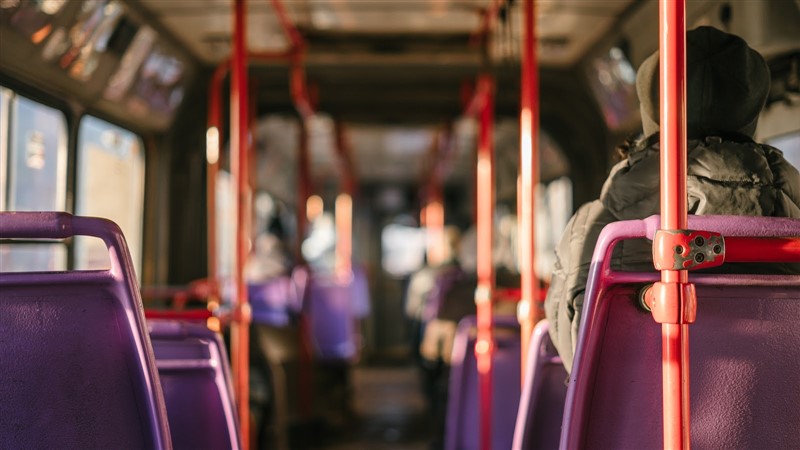
Definitions
Merriam-Webster defines the word “traveling” as an adjective and lists “travelling” as a variant spelling.
The dictionary provides the following meanings:
- going to different places instead of staying in one place
- carried by, used by, or accompanying a traveler
Traveling can also be a conjugation of the verb “to travel.” Merriam-Webster defines travel as, “to go on or as if on a trip or tour” and “to move or undergo transmission from one place to another,” among other definitions.
According to Thesaurus.com , synonyms for traveling include:
Other Words and Phrases
A “traveler’s check” is a preprinted check, used in the place of cash, intended to protect international travelers from theft. The Online Etymology Dictionary explains that the term originated in 1891.
A “travel-agent” or “travel agent” is a person or company employed to make travel arrangements. Although the term originated in 1925, the first travel agents ( Cox & Kings ) predated the moniker by over 150 years.
U.S. traveler Burton Holmes invented the word “travelogue” by combining the word “travel” and the Greek suffix – logue. A travelogue describes a piece of writing, a lecture, or a film about travel.
“Taking the path less traveled” is an idiom used to describe an uncommon choice. The phrase comes from the Robert Frost poem, “ The Road Not Taken ,” which contains the lines: “Two roads diverged in a wood, and I— / I took the one less traveled by.”
“Traveling light” is an idiom referring to someone who travels without much luggage. The phrase can also be used in a figurative sense to describe someone without ties or responsibilities.
The Words in Context
“…Experts say that traveling by car may be the safest option in a pandemic — but road trips still come with risks.” — The Washington Post , “Hitting the Road? Here’s What to Know…”
“An expanding list of Canadian politicians are in hot water after being caught vacationing or travelling abroad amid a worsening COVID-19 pandemic at home.” — CTV News , “Growing List of Canadian Politicians …”
“New York City has introduced quarantine rules for international travellers following emergence of new Covid variants in countries like the UK.” — BBC News , “Coronavirus: New York City Orders International Visitors…”
“Belize is the only English-language-official country in Central America. As a popular tourist destination, English is spoken by everyone, and many prices are listed in U.S. Dollars (the Belize dollar is tied to the U.S. Dollar with a fixed exchange rate), making it a comfortable destination for first-time international travelers.” — USA Today , “Did you know? English is the Official…”
- https://www.etymonline.com/word/travail
- https://www.etymonline.com/search?q=travel
- https://www.merriam-webster.com/dictionary/traveling
- https://www.merriam-webster.com/dictionary/travel
- https://www.thesaurus.com/browse/traveling?s=t
- https://www.poetryfoundation.org/poems/44272/the-road-not-taken
- https://www.washingtonpost.com/travel/tips/road-trip-rest-stop-covid/
- https://www.ctvnews.ca/politics/growing-list-of-canadian-politicians-caught-travelling-abroad-despite-pandemic-1.5251039
- https://www.usatoday.com/story/travel/destinations/2020/02/03/english-official-language-these-five-countries/4556924002/
- https://www.bbc.com/news/world-us-canada-55432977

Kari Lisa Johnson
I’m an award-winning playwright with a penchant for wordplay. After earning a perfect score on the Writing SAT, I worked my way through Brown University by moonlighting as a Kaplan Test Prep tutor. I received a BA with honors in Literary Arts (Playwriting)—which gave me the opportunity to study under Pulitzer Prize-winner Paula Vogel. In my previous roles as new media producer with Rosetta Stone, director of marketing for global ventures with The Juilliard School, and vice president of digital strategy with Up & Coming Media, I helped develop the voice for international brands. From my home office in Maui, Hawaii, I currently work on freelance and ghostwriting projects.
Recent Posts

Allude vs. Elude?

Bad vs. badly?

Labor vs. labour?

Adaptor vs. adapter?

- TEFL Internship
- TEFL Masters
- Find a TEFL Course
- Special Offers
- Course Providers
- Teach English Abroad
- Find a TEFL Job
- About DoTEFL
- Our Mission
- How DoTEFL Works
Forgotten Password

- Traveling or Travelling? Which is the Correct Spelling?
- Learn English
- James Prior
- No Comments
- Updated February 5, 2024

Traveling or travelling? Which is the correct spelling?!
Traveling is one of the most popular activities in the world. It can take many forms, from going on a weekend getaway to taking a luxurious vacation abroad. Despite its popularity, there is still some confusion surrounding the correct spelling of the word.
As DoTEFL is a website dedicated to teaching English and traveling via TEFL , it only feels right that we clear up any confusion about the correct spelling of traveling (or should I say travelling?). After all, it’s a question that gets asked a lot and spelling is an important part of English grammar.
So, before you start writing your packing list and set off on your travels, let’s explore the difference between traveling and travelling and look at which spelling should be used.
So, what’s the answer?
Table of Contents
Traveling Vs Travelling?
Traveling or Travelling? When it comes to the English language, there can be quite a bit of confusion in regards to spelling. While “traveling” is the preferred spelling in American English, “travelling” is the preferred spelling in British English.
Firstly, the spelling of both words is correct and they are both the same word! However, there are a couple of things to keep in mind when deciding which one to use.
The first difference between traveling and travelling is geographical location. American English typically uses “traveling” while British English opts for “travelling”. So, if you’re an American writer, “traveling” will generally be your go-to choice; if you’re British, or if you live in one of the other commonwealth countries , then “travelling” should do the trick!
However, you also need to keep in mind your audience. If you’re writing for an American audience it would make sense to use “traveling”. Whereas if you’re writing for an English audience you’d want to opt for “travelling”. In my case I am an English writer but our website has a larger audience in the U.S. so I have used the spelling of traveling with one ‘l’ here.

Where is Traveling Used?
Traveling is used when the author is writing in American English or writing for an U.S. audience.
Where is Travelling Used?
Travelling is used when the author is writing in British English. However, the audience isn’t just confined to Britain here.
There are 54 countries in the Commonwealth, which is an association of countries across the world historically connected to the British Empire. They all use the British English spelling of “travelling” with two ‘L’s. This includes Commonwealth Countries such as Canada, Australia and New Zealand, plus all the other commonwealth countries.
So, if you travel across the U.S. border into Canada you go from being a traveler to a traveller!
Can you use a mix of traveling and travelling?
It’s best to avoid using a mixture of the two spellings, even if your audience is unclear. This is because you should always be consistent with your grammar throughout a piece of writing.
You should also be aware of this if you ever use a grammar checker to go over your work. For example, if you write in British English but the grammar checker is set to American English, you may find yourself inadvertently making corrections from “travelling” to “traveling”. If this does happen, make sure that you don’t accidentally only change half by mistake!
Should you change travelling to traveling?
The answer to this question comes down to your audience. You have to write according to what your audience understands and needs. If they are a British English audience you should keep “travelling”. If the audience uses American English then you’ll want to consider changing it to “traveling”.
On this site we predominantly use the spelling “travelling”. However, if there are articles that are mainly read by our audience in the UK we will use “travelling”.
For whatever piece of writing your doing, the key thing is to choose a spelling and stick to it. Consistency is the key.
And, if you want to avoid the traveling Vs travelling conundrum altogether you can always get creative. For example, instead of writing “I like travelling”, you could write “I like to travel”. Or, instead of “I’m a traveler”, you can just use “I travel”.
Traveler or Traveller?

The same rules apply for the spellings of traveler or traveller and traveled or travelled. If you’re using American spelling go with one ‘L’ but if you’re writing for countries that use British English conventions go with two ‘L’s!
Conclusion: The Road Less Traveled?
When determining whether to use “traveling” or “travelling” it is important to consider your audience and understand that language conventions may vary from region to region. “Traveling” is more commonly used in the United States, but in nearly all other English-speaking countries, the spelling of “travelling” is preferred.
With this in mind, you should write for the needs of your audience. Where you are from should be secondary to where your audience is from, as it they who you serve and seek to provide value to.
What about you, do you use traveling or travelling? What were you taught in school? Let us know in the comments and continue to enjoy your travels!
- Recent Posts
- How to Use a Smart Board: A Step-By-Step Guide - August 8, 2024
- What is a Smart Board? Overview, Features, Uses & Benefits - August 8, 2024
- Smart Classrooms: What Are They & How Do You Set One Up? - August 8, 2024
More from DoTEFL

11 Effective Ways to Learn Vocabulary Fast
- Updated January 28, 2024
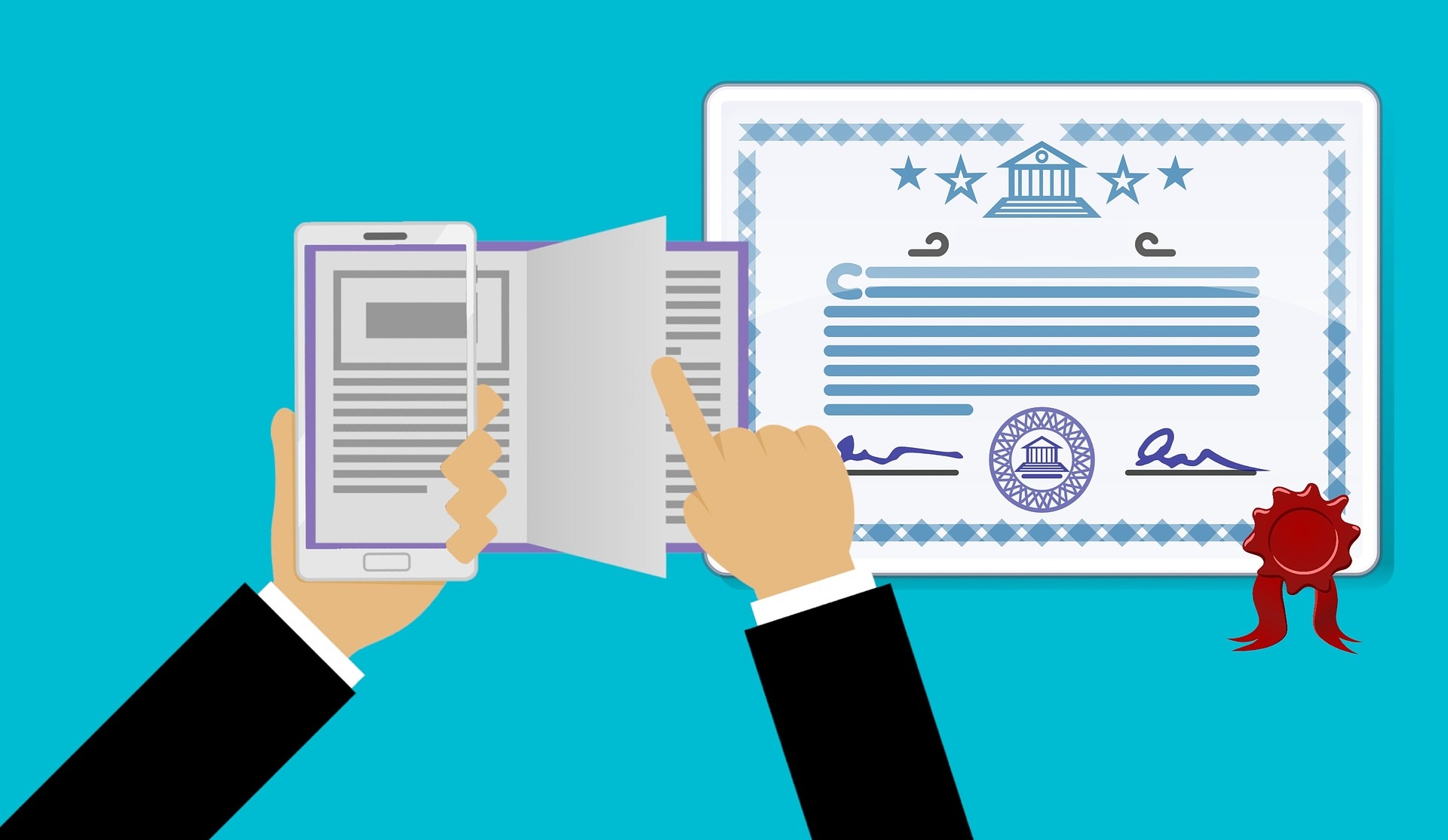
Do TEFL Certificates Expire? What You Need to Know
- Updated January 29, 2024

TEFL Certification Guide: Get TEFL Certified in 2024
- Updated February 2, 2024

Go Home or Go to Home? Which is Correct?
- Updated February 27, 2023

Why TEFL Is Perfect for Digital Nomads and Travel Enthusiasts
- Updated May 24, 2024

How to Write a Conclusion That Leaves a Lasting Impression
- Updated July 24, 2023
- The global TEFL course directory.

Travelling or traveling – which form is correct?
Do you like to travel? It is fascinating to explore new places, get to know new people and different cultures. Another fascinating thing about it is spelling. Do you know how to spell other forms of the verb to travel ? Is it single or double “l”? Travelling or traveling ? Read this article to find out.
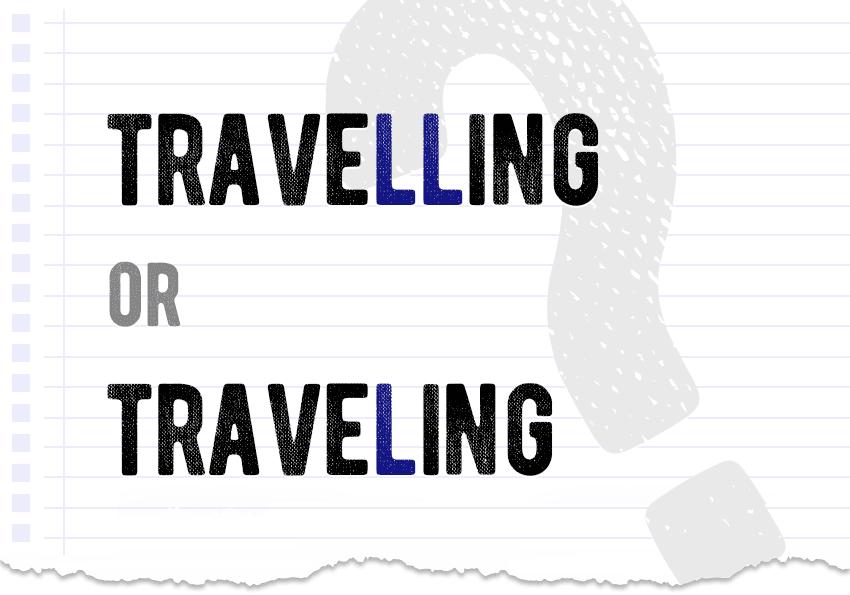
Travelling or traveling ? What is the difference?
Is there any difference between travelling and traveling ? At first sight, they only differ in the number of “l’s”, so it is not really much of a difference, but what about their meaning or function? As you will see in the further section of this article, the definition of both words is exactly the same and both spellings are perfectly correct, the only difference being where exactly you are going!
READ ALSO : Lieing or lying – which one is correct?
Travelling or traveling ? Which form is correct?
Travelling and traveling are both inflected forms of the verb to travel , and they are both correct, though used in different places. Fortunately, it is pretty straightforward as a rememberable pattern emerges here: in American English, you normally do not use a double letter when you add an ending to a verb, hence traveling , while in British variants of English you do, which means in the UK and elsewhere you write travelling .
Travelling or traveling ? The correct form
Travelling or traveling ? Now it is all clear! Read the below section to make sure you know the definition of this word.
READ ALSO : Tried or tryed? Which of these two forms is correct?
Travelling / traveling – the meaning
Travelling and traveling are inflected forms of the verb to travel , which means to make a journey, usually over a long distance.
After university, she spent two years travelling .
Travelling / traveling is also a noun that refers to the activity of making journeys, travel.
In his spare time he enjoys reading, travelling and movies.
It is also an adjective that means moving from one place to another, especially to perform or while working, etc.: a travelling performer /exhibition/ circus
Travelling or traveling ? More examples from the literature and press
It was plain that many people regarded them now as the companions of a travelling magician of unknown powers and purpose.
J.R.R. Tolkien, The Fellowship of the Ring
I’ve been past those fields every day, morning and evening, travelling by, oblivious.
Paula Hawkins, The Girl on the Train
Either traveling as much or just adjusting to, like, the refs and really how they call the game.
“New York Times”, Apr 19, 2022
Conversely, traveling and spending with U.S. dollars have now become pricier for those who earn wages in euros.
“Washington Post”, Jul 13, 2022

Written by Katarzyna Sienkiewicz
After graduating with a MA in English Philology, Kasia lived for almost five years in the UK facing the challenge of trying to master the intricacies of English language, which is her consuming passion. Other things she enjoys doing in her spare time are singing in a local parish band, embroidery, reading, cycling, and enjoying the outdoors with her family and friends.

Traveling or Travelling? Which is Correct Spelling?! Learn Here…
By: Author Lillie Marshall
Posted on Published: January 25, 2020 - Last updated: January 11, 2023
Is it Traveled or Travelled ?
Traveler or traveller , traveling or travelling .
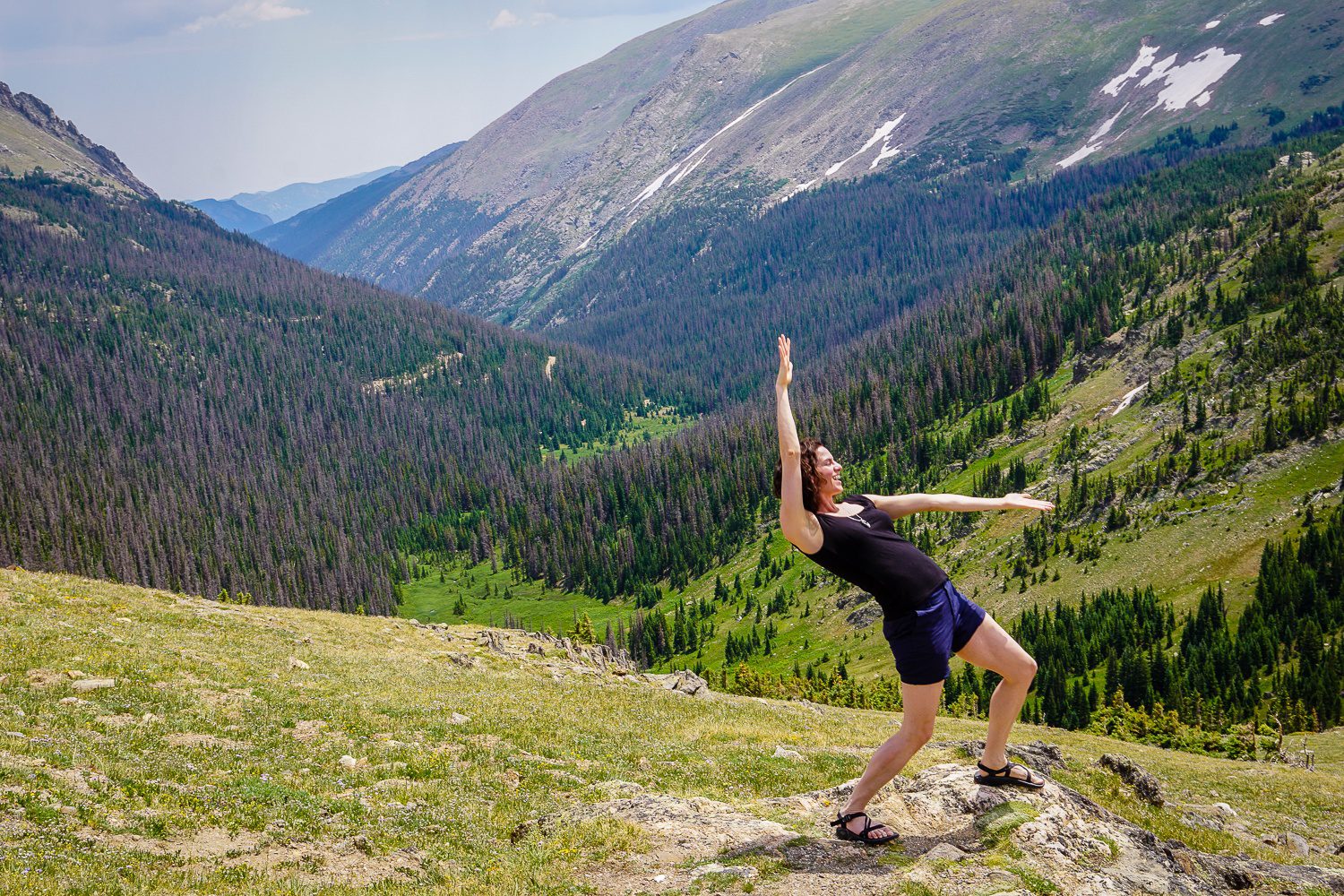
Answer: The spelling depends on WHERE you are in the world.
Now, the main purpose of this site is to share teacher travel grants and other global education opportunities, but I couldn’t resist creating this grammar article, because the “Traveling” spelling question comes up often, and causes kerfuffles.
I’ve been a full-time English teacher since 2003, so allow me to (ahem, pun coming) SPELL out the “Traveling or Travelling” rule for you in order to spread confidence and accuracy in the world.
Hey — it might even help in editing your applications for teacher fellowships , or assist in determining the correct way to structure a spelling lesson if you decide to teach English abroad !

Traveling vs. Travelling = U.S. vs. British Spelling
It’s all about geographical linguistics, my friends! The United States (and other countries that use American English spelling conventions) are in the “ one L ” boat for spelling.
In other words, if you’re in New York, or writing for a New York audience, what is correct is to write: “ Traveling ” because that’s the American spelling. If you’re in London, or writing for a London audience, tap: “ Travelling ” into your keyboard.
The same goes for all versions of Traveler/Traveller, and Traveled/Travelled: One “L” for countries that use American spelling, and two for places that embrace British English writing conventions. Simple !

Canada: Traveling or Travelling?
Wait… maybe it’s not THAT simple. What about Canada? That country is geographically close to the U.S. and thus should use just one “L,” right? Wrong .
Canada is one of the Commonwealth Countries: more than 50 nations that once were part of the British Empire. Hence, Canada uses the double – L rule, and if you’re in Quebec City , the correct spelling is: Travelling .
Other Commonwealth Countries that use the “two L” spelling (Travelled, Traveller, and so on) include Australia, South Africa, and New Zealand.
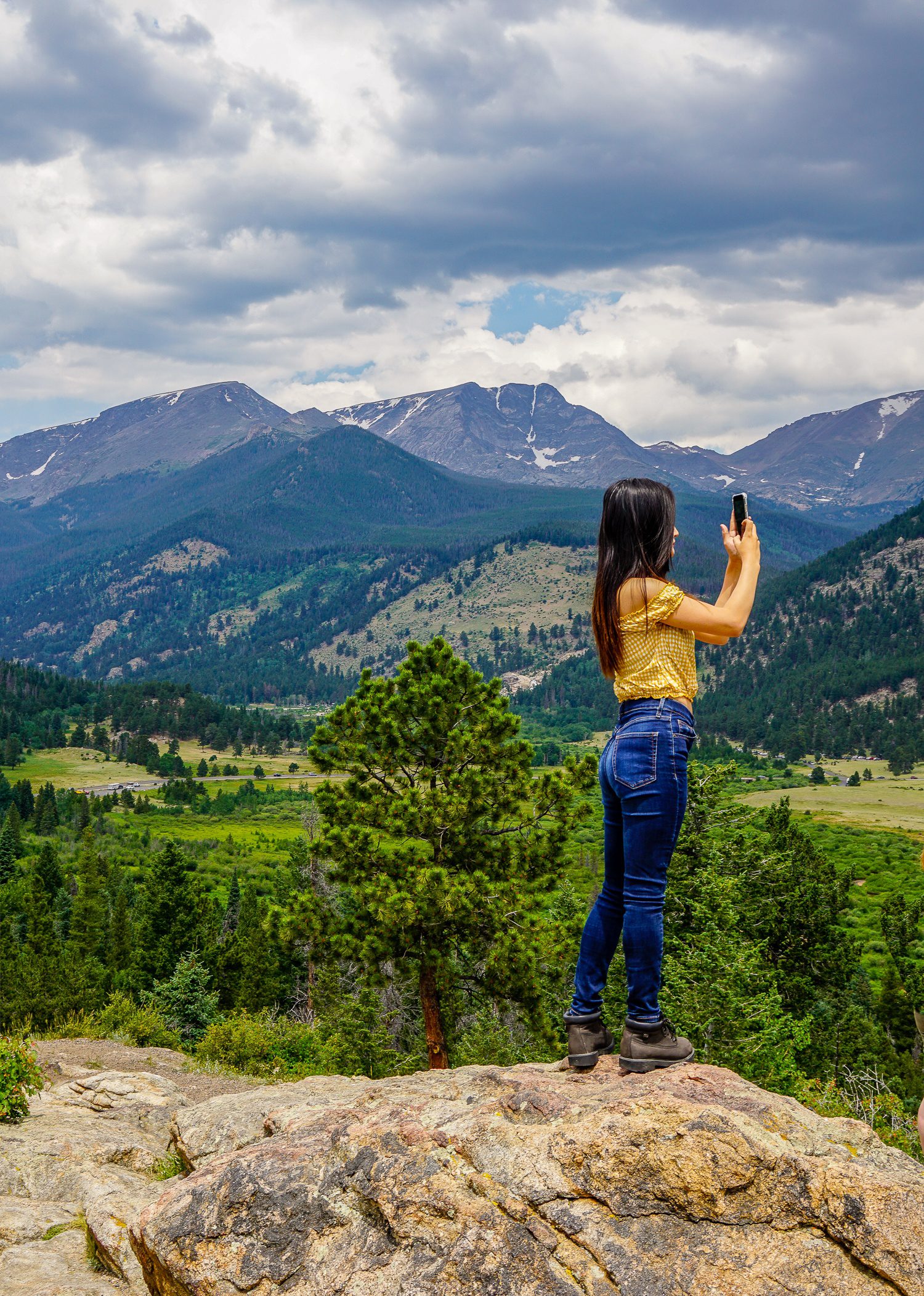
Is this Site Teaching Traveling or Travelling ?
The reason this site is called Teaching Traveling with ONE “L” is because I’m American , and my readership is predominantly American. (The one “L” thing is also a nice connection to the fact that my other site is called Around the World “L” !)
Alas, when things get tricky is when geographical worlds start to mix. This issue may pop up for you, too, so let’s address it directly.

What About a Mix of American and British Contexts?
Chances are you may find yourself in a situation where it’s unclear whether you should use the American or British version of our favorite “T” word. What then?
Here’s a frequent example I encounter on this site: If a British teacher types her answers to my interview questions using the double-L spelling, Travelling , do I go in and “ correct ” every instance of it to the single-L version ?
My American spell-checker sure thinks I should, and in fact is yelling at me to fix it at this very moment, its jaggedy red teeth bared!
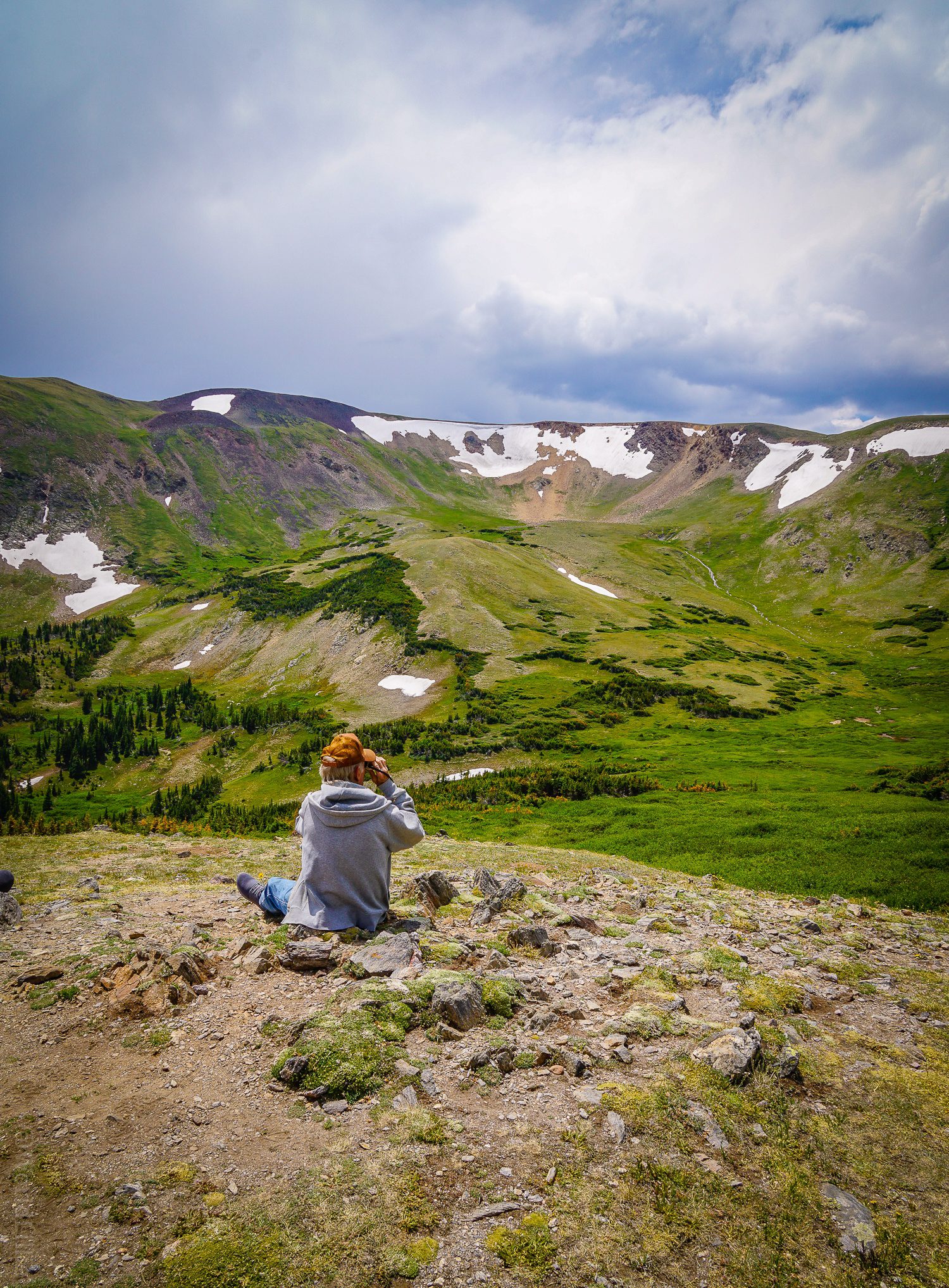
Should Travelling be Changed to Traveling ?
So what’s the answer to this two-context spelling dilemma? You have two choices, and either can be justified, depending on what your audience genuinely needs and wants.
Option #1 : Pick one spelling and stick to it throughout your body of work. In my case, if I chose this option, I would change all spelling on this site to the American one-L “Traveling.”
Sometimes I do this, clicking through all the U.S. spell-check suggestions to “fix” the British double L, because the article is one I know will mostly reach U.S. readers who might be confused by the unfamiliar spelling. Usually, however, I opt for the other option.
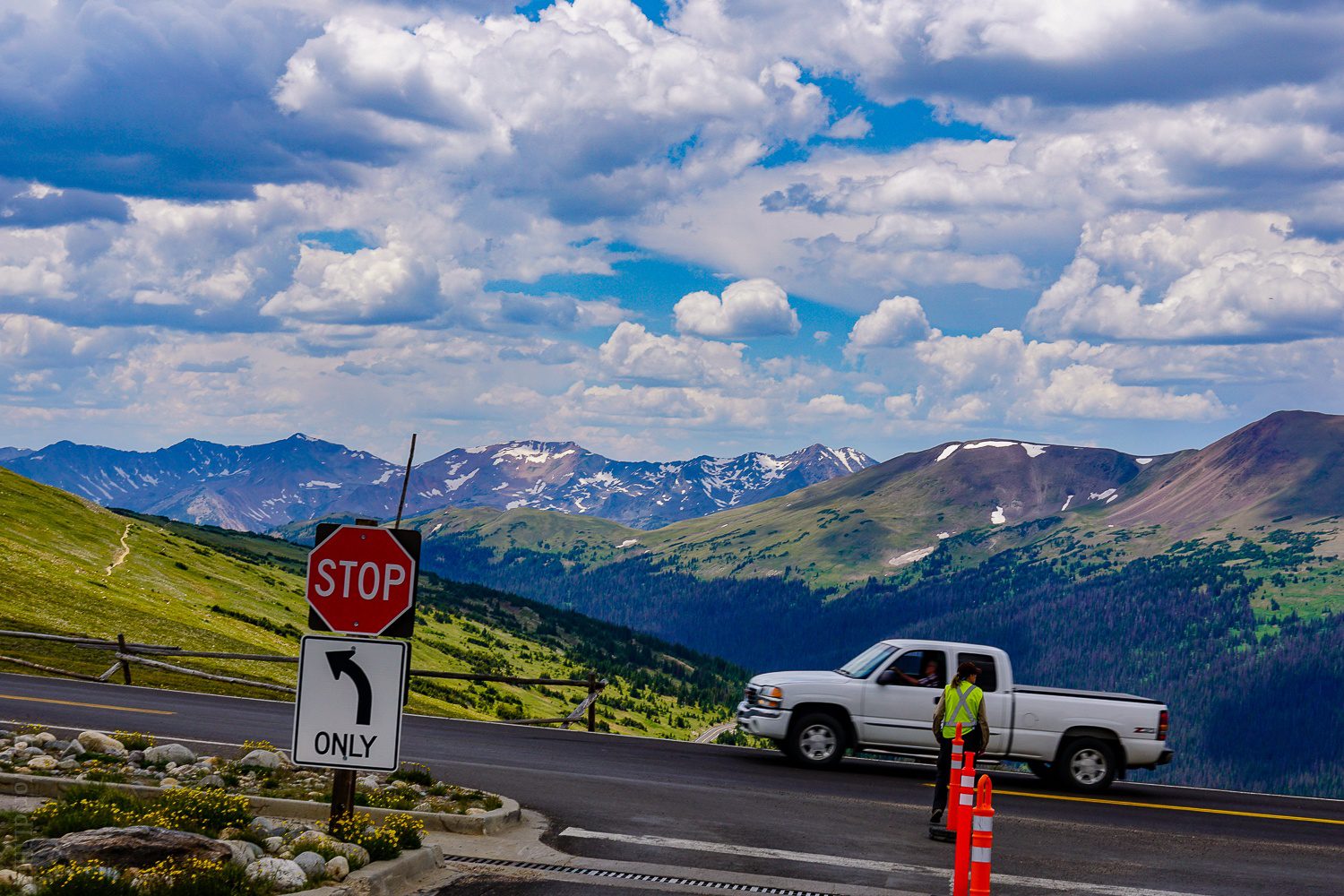
When to Keep “Travelling” Spelling
Option #2 : Change between “Travelling” and “Traveling” based on what the majority audience of the piece is expecting.
This option is what I chose to do for interviews with these teachers from Canada and Ghana , because I decided that readers would understand that the “Travelling” spelling was correct in the context of the British English country the speakers were from.
I also knew that the interviewees would also be sharing the articles with their friends, who in turn were used to the double-L spelling. In other words, it wouldn’t be correct for me to “correct” their British spelling in that situation.
Avoiding Traveling vs. Travelling
Bonus Option : Really stuck for whether to use Traveling or Travelling? If your piece is short enough, alter word choice so you don’t need to use either! For example, instead of saying, “I’m a traveller,” write, “I’m a person who loves to travel.” Kind of sneaky and sometimes silly, but if you’re really stuck, it’s an option.
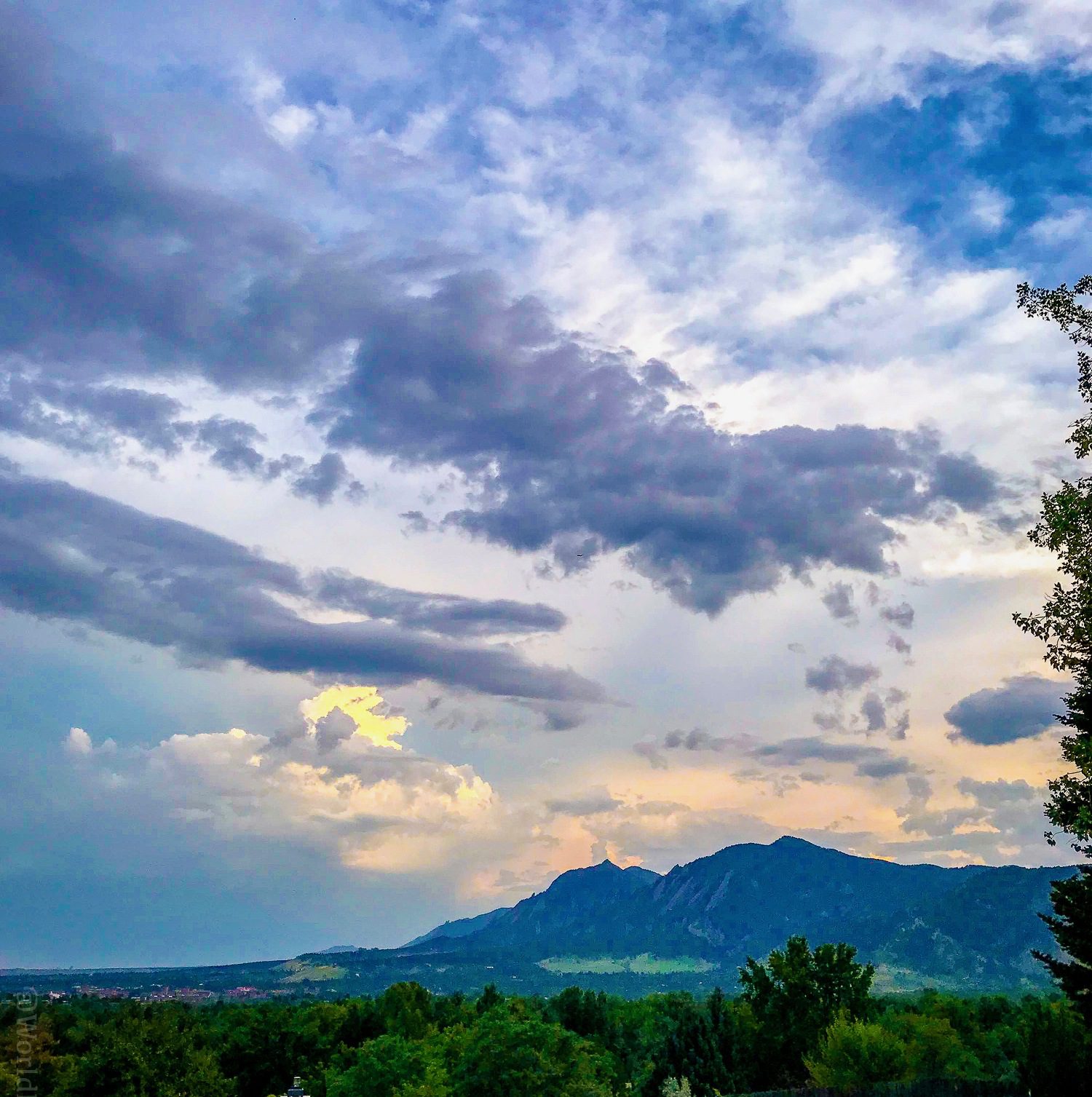
So, Traveling or Travelling?
In summary, it comes down to this: What does the specific audience of your written piece need and expect? Who you are and where you’re from becomes secondary to who they are and what they need.
That’s kind of deep , eh?
I hope you enjoyed this grammar lesson and found it useful. It’s the first one I’ve written (well, besides a tutorial on how to use the word “ Dushi “), and I must say that I found it so fun to write that I might just start putting down more of my 15 years of English teaching knowledge into articles…
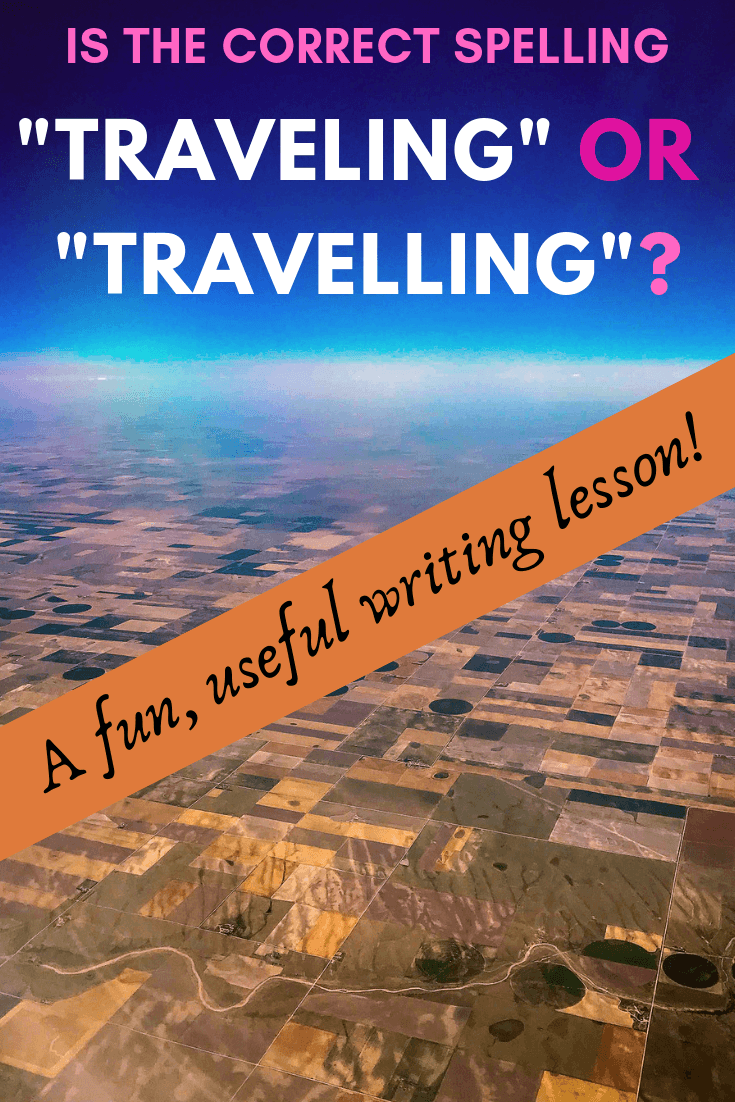
So what about you? What’s been your experience with the Traveling/Travelling divide? Did you know this rule before, and how did you learn it?
Are there other grammar, writing, or global education lessons you’d like to see on these pages? Do share!

The author, Lillie Marshall, is a 6-foot-tall National Board Certified Teacher of English from Boston who has been a public school educator since 2003. She launched TeachingTraveling.com in 2010 to share expert global education resources, and over 1.6 million readers have visited over the past decade. Lillie also runs AroundTheWorld L.com Travel and Life Blog, and DrawingsOf.com for educational art. Do stay in touch via subscribing to her monthly newsletter, and following @WorldLillie on social media!
Check this box to receive email notification of follow-up comments!
This site uses Akismet to reduce spam. Learn how your comment data is processed .
Monday 4th of January 2021
Thank you, Lillie! This was so helpful! I first learned English in Canada and often find myself "mixing up" American and British rules. It wasn't until recently that I learned that Canadian spelling is independent and consisting of both American and British rules! (normally including the "double L" rule and the "z" in words like specialize).
Lillie Marshall
So glad this helped! Very interesting that Canada uses a hybrid of British and American spellings, including the Z swap!
Tuesday 8th of September 2020
Lol I do have this issue in India is a Commonwealth country. Similarly, we have colour and color. Now I can say as long as you understand but when my kids were schooling I was after them for British spellings.
So interesting! Thank you for sharing!
Randy Franciose
Saturday 29th of August 2020
I misspelled this word on my wife's grave marker and only noticed my error yesterday, a year after she died. Does this imply she was an Anglophile or merely that her widower is a deficient speller?
Monday 11th of January 2021
@Lillie Marshall, Agreed!
Sunday 30th of August 2020
Never fear -- what you wrote was written with love and that's what matters!
Tuesday 28th of April 2020
When I was in Elementary School in the 1960's we were taught the double L rule. This was in the US.
Wednesday 11th of August 2021
@John, Same here. In Pennsylvania in the 1960's and 1970's, I was taught the double L rule, and still use it.
This is so interesting!!! Thank you for sharing this information. Do we think conventions changed over the years?
M Nazmul Huq Talukder
Tuesday 4th of February 2020
Yes, i faced problems while spelling this word.
Saturday 22nd of February 2020
Hope this helps!

Travelling vs. Traveling — What's the Difference?
Difference Between Travelling and Traveling
Table of contents, key differences, comparison chart, pronunciation, spelling rule, compare with definitions, common curiosities, are there any exceptions to the doubling rule in british english, can both spellings be used interchangeably, is one spelling considered more correct than the other, do other english-speaking countries follow the british or american spelling, does the spelling difference affect verb conjugations, is the meaning of "travelling" and "traveling" different, how do you decide which spelling to use, how is the past tense of "travel" spelled in british and american english, can software detect the difference between british and american spellings, how can learners of english remember the spelling difference, share your discovery.

Author Spotlight
Popular Comparisons

Trending Comparisons

New Comparisons

Trending Terms

- Pangram Solver
- Anagram Solver
- Rhyming Dictionary
- AI Title Generator
- Poem Title Generator
- Book Title Generator
- YouTube Title Generator
- Essay Title Generator
- Title Rewriter
- Title Capitalization
- Sentence & Paragraph Rewriter
- Essay Writer
- Book Title Wizard
- Random Movie Generator
- Fortune Cookie Generator
- Random European Country Generator
- Random Country Generator
- Empty and Invisible Character Generator – Blank ( ) Texts
- Random State Generator
- Prompts Generator
- Text Repeater (Add Text, Repeat, & Share)
- Speech Generator
- Character Name Generator
- Name Generators
- Pokemon Name Generator
- Character Backstory Generator
- Song Generator
- Poem Generator
- Word Search Puzzles
- Ideation Articles
- Random Topic Generator
- Writing Prompt Generator
- Random Essay Title Generator
- Writing Articles
- Online Word Counter
- Online Grammar Checker
- Headline Analyzer
- Best Book Writing Software and Book Writing Apps
- 150 Best Resources for Writers
- Productivity
- English Language
- Grammar Tips
- Headline Analyzer Tool
- Title Capitalization Rules
- For WordPress
- Publishing Articles
- Email Marketing
- Book Articles
- How to Get A Book Published
- Best Literary Agencies
- How To Self Publish a Book
Travelling vs Traveling: Which Is Correct?
We enjoy travel. We see places we have never been to, meet new people, see different cultures, see famous world historic sites and they help create memories. It creates joy and happiness from these memories.
While everything to do with travel is great, the spelling can make you annoyed and irritated. Travel is spelled the same universally but the confusion comes from “traveling and travelling”, “traveled and travelled” and “traveler and traveller”. These words create a lot of confusion for many people.
Table of Contents
Traveling or Travelling: Which Spelling Is Correct?
Both are correct. The word “traveling” is mostly used in the USA and “travelling” is used in the UK and its commonwealth countries such as Australia. Many other words are different such as “color and colour”, “flavor and flavor” among many others.
The difference between the UK and USA English for this particular word is that for US English, whenever a word ends with a vowel and a consonant in that order the consonant is doubled only if stress in pronunciation falls on the final syllable. For instance, in the word “travel,” stress is on the first syllable there is no doubling of the letter l. Many other words share this fate.
You now know the spelling to use when writing an email, article or a college paper for someone or institution in the US you should use the shorter spelling traveling . If you are in the US and writing to someone in the commonwealth such as Australia you could choose to use the longer version which is what they use and prefer . Mixing the words may make you be called out for misspelling.
Where Did the Differences Between Traveling and Travelling Originate?
The reason behind the different spellings is because British English absorbed the spelling of words from other languages like German, and French. While American English is usually based on how the word is pronounced or spoken. Back in the 18th century, English spelling was inconsistent. American English followed Webster’s An American Dictionary of the English Language (“ADEL”, “Webster’s Dictionary”, 1828), while British English followed Johnson’s “A Dictionary of the English Language” (1755). This is the reason why the English Language today is spelled in several different ways.
The word “Travel” may have originated from an old French word “Travali” which at the time was synonymous to work, labor, and torture. The word also originated from Middle English “Travailen” and “Travelen” which meant torment, journey, labor, and strive. The reason behind this may have been due to the difficulty of going out to travel during the 14th century when technology wasn’t as developed, and when their life conditions were harder. It was a whole lot more difficult for people back then to get from one place to another. That’s why they aligned the word “Travel” with words related to torment.
The word “Travel” slowly transitioned into a different meaning during the 19th century when a network of railways were installed which made it easier to travel long distances, and during the 20th century when airplanes and airships took over. This made the whole concept of travel a lot more fun, and people began to see this as a leisure activity, rather than a challenging task. Because of that, “Travel” is no longer synonymous to labor or torture, given the fact that our generation today has more advanced and easier ways to travel compared back then. The word today has transitioned into a different meaning that we relate to leisure or pleasure due to the more convenient and comfortable options we have to travel.
Examples of Traveling vs Travelling
At that time, I was traveling to Texas, USA when I met my colleague at the waiting lounge at Heathrow Airport.
He traveled all the way to the Mexican border by road, slept in a local motel before embarking on the journey by train to the capital.
The UK soccer team will be travelling by road to the training ground because the scheduled flight has been delayed.
She travelled to the South of London last evening to visit her ailing sister. She will be back in Liverpool on Monday.
In Conclusion
Both American and British English are correct, however it should be used depending on where you are, or where your audience is from, and what type of English is being used, to avoid confusions or miscommunications. Language can be really confusing and complicated at times, but that is what makes it pretty interesting, it can be used in all these different and unique ways. It constantly changes, and varies from generation to generation. In 20 years, the word “Traveling” or “Travelling” may even mean something else by then, or even be spelled in a different way. We can never tell. It is a never ending process of evolution of words we all have to be willing to adapt to.
LEAVE A REPLY Cancel reply
Save my name, email, and website in this browser for the next time I comment.
- Accessibility
Forgot your password?
Lost your password? Please enter your email address. You will receive mail with link to set new password.
Back to login
Words and phrases
Personal account.
- Access or purchase personal subscriptions
- Get our newsletter
- Save searches
- Set display preferences
Institutional access
Sign in with library card
Sign in with username / password
Recommend to your librarian
Institutional account management
Sign in as administrator on Oxford Academic
travelling | traveling noun
- Hide all quotations
What does the noun travelling mean?
There are two meanings listed in OED's entry for the noun travelling . See ‘Meaning & use’ for definitions, usage, and quotation evidence.
How common is the noun travelling ?
How is the noun travelling pronounced, british english, u.s. english, where does the noun travelling come from.
Earliest known use
Middle English
The earliest known use of the noun travelling is in the Middle English period (1150—1500).
OED's earliest evidence for travelling is from 1489, in the writing of John Barbour, ecclesiastic and verse historian.
It is also recorded as an adjective from the Middle English period (1150—1500).
travelling is formed within English, by derivation.
Etymons: travel v. , ‑ing suffix 1 .
Nearby entries
- traveller | traveler, n. a1387–
- travelleress | traveleress, n. 1820–
- traveller-like | traveler-like, adj. 1825–
- traveller's cheque | traveler's cheque, n. 1891–
- traveller's diarrhoea | traveler's diarrhoea, n. 1890–
- travellership | travelership, n. 1824–
- traveller's joy | traveler's joy, n. 1597–
- traveller's palm | traveler's palm, n. 1850–
- traveller's tale | traveler's tale, n. 1747–
- traveller's tree | traveler's tree, n. 1809–
- travelling | traveling, n. 1489–
- travelling | traveling, adj. 1340–
- travelling agent | traveling agent, n. 1737–
- travelling bed | traveling bed, n. 1706–
- travelling cabinet | traveling cabinet, n. 1785–
- travelling carriage | traveling carriage, n. 1667–
- travelling circus | traveling circus, n. 1836–
- travelling couvert, n. 1828–83
- travelling exhibition | traveling exhibition, n. 1800–
- travelling expenses | traveling expenses, n. 1653–
- travelling fellowship | traveling fellowship, n. 1694–
Thank you for visiting Oxford English Dictionary
To continue reading, please sign in below or purchase a subscription. After purchasing, please sign in below to access the content.
Meaning & use
Pronunciation, compounds & derived words, entry history for travelling | traveling, n..
travelling, n. was revised in March 2020.
travelling, n. was last modified in September 2023.
oed.com is a living text, updated every three months. Modifications may include:
- further revisions to definitions, pronunciation, etymology, headwords, variant spellings, quotations, and dates;
- new senses, phrases, and quotations.
Revisions and additions of this kind were last incorporated into travelling, n. in September 2023.
Earlier versions of this entry were published in:
OED First Edition (1914)
- Find out more
OED Second Edition (1989)
- View travelling, vbl. n. in OED Second Edition
Please submit your feedback for travelling | traveling, n.
Please include your email address if you are happy to be contacted about your feedback. OUP will not use this email address for any other purpose.
Citation details
Factsheet for travelling | traveling, n., browse entry.
- ABBREVIATIONS
- BIOGRAPHIES
- CALCULATORS
- CONVERSIONS
- DEFINITIONS

Grammar Tips & Articles »
Travelled vs. traveled, this grammar.com article is about travelled vs. traveled — enjoy your reading.
Lee travelled to the Middle East during vacations.
Or had she traveled?
Travel, a simple and common word of English, when used in its derivative forms can be written in two ways; with a single l or with two ls. This can be seen in traveled and travelled, traveling and travelling and traveler. These variations in the spellings arose due to differences in American English and British English and often result in confusion among writers.
These differences are openly discussed in this article where origin, meanings, usage and examples are used to clear out these confusions.
The word travel originated from Middle English: a variant of travail , and originally in the same sense.
Travel as verb:
Travel is used as a verb in English language where it means to make a journey, typically of some length.
The vessel had been travelling from Libya to Ireland.
To journey along (a road) or through (a region) and to withstand a journey without illness or impairment is also called travel.
He usually travels well, but he did get a bit upset on a very rough crossing.
Travel is also used to describe the task of being successful away from the place of origin.
Accordion music travels well.
Travel is used to imply the meaning of (of an object or radiation) movement, typically in a constant or predictable way.
Light travels faster than sound.
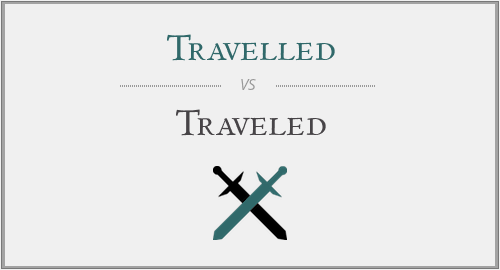
The action of travelling is called travel as noun.
My job involves a lot of travel.
Something that is (of a device) sufficiently compact for use on a journey is called travel.
She packed a travel iron along with other things.
Travelling or traveling:
Travelling and traveling are the two spellings of the same word. Both of these spellings are acceptable and exchangeable in English language but their usage differ according to the part of the world they are spoken in. In American English, the inflected forms of travel take one l—so, traveled, traveling, traveler, etc. In varieties of English from outside the U.S., these forms take two l’s—travelled, travelling, traveller, etc.
On average, it traveled 4 to 5 miles an hour. [Los Angeles Times]
Morgan claimed the French vessel has been towing at 4 nautical miles, whereas the tugs could have traveled at 6 to 7 nautical miles. [Newsday (dead link)]
But perhaps the most logical of all explanations is that Romney is a time traveler. [Washington Post]
When to use which spellings?
If you reside in US, the acceptable spellings are the ones with a single l; traveling. However, if you belong to Europe, the acceptable spellings are with two ls; travelling. Remember to choose the spellings according to your audience too. If you are writing for American community, you should use American spellings and vice versa.
Email Print
Have a discussion about this article with the community:
Report Comment
We're doing our best to make sure our content is useful, accurate and safe. If by any chance you spot an inappropriate comment while navigating through our website please use this form to let us know, and we'll take care of it shortly.
You need to be logged in to favorite .
Create a new account.
Your name: * Required
Your email address: * Required
Pick a user name: * Required
Username: * Required
Password: * Required
Forgot your password? Retrieve it
Use the citation below to add this article to your bibliography:
Style: MLA Chicago APA
"Travelled vs. Traveled." Grammar.com. STANDS4 LLC, 2024. Web. 10 Aug. 2024. < https://www.grammar.com/travelled_vs._traveled >.
The Web's Largest Resource for
Grammar & spelling, a member of the stands4 network, checkout our entire collection of, grammar articles.
- Ball vs. Bawl
- Blockquote Test Page
- potatoes - correct spelling
- pedagogy - vocabulary
See more
Free, no signup required :
Add to chrome.
Two clicks install »
Add to Firefox
Browse grammar.com.

Free Writing Tool :
Instant grammar checker.
Improve your grammar, vocabulary, style, and writing — all for FREE !
Try it now »
Are you a grammar master?
Choose the sentence with correct use of the possessive pronoun:.

Improve your writing now :
Download grammar ebooks.
It’s now more important than ever to develop a powerful writing style. After all, most communication takes place in reports, emails, and instant messages.
- Understanding the Parts of Speech
- Common Grammatical Mistakes
- Developing a Powerful Writing Style
- Rules on Punctuation
- The Top 25 Grammatical Mistakes
- The Awful Like Word
- Build Your Vocabulary
More eBooks »

Cookies on GOV.UK
We use some essential cookies to make this website work.
We’d like to set additional cookies to understand how you use GOV.UK, remember your settings and improve government services.
We also use cookies set by other sites to help us deliver content from their services.
You have accepted additional cookies. You can change your cookie settings at any time.
You have rejected additional cookies. You can change your cookie settings at any time.
- Entering and staying in the UK
- Visas and entry clearance
- Online immigration status (eVisa): help videos
- Home Office
- UK Visas and Immigration
How to travel with your eVisa (video)
Updated 6 August 2024

© Crown copyright 2024
This publication is licensed under the terms of the Open Government Licence v3.0 except where otherwise stated. To view this licence, visit nationalarchives.gov.uk/doc/open-government-licence/version/3 or write to the Information Policy Team, The National Archives, Kew, London TW9 4DU, or email: [email protected] .
Where we have identified any third party copyright information you will need to obtain permission from the copyright holders concerned.
This publication is available at https://www.gov.uk/government/publications/online-immigration-status-evisa-help-video/how-to-travel-with-your-evisa-video
How to Travel With Your eVisa
What did you think of this video?
Is this page useful?
- Yes this page is useful
- No this page is not useful
Help us improve GOV.UK
Don’t include personal or financial information like your National Insurance number or credit card details.
To help us improve GOV.UK, we’d like to know more about your visit today. Please fill in this survey (opens in a new tab) .

Britain to be hotter than the Sahara Desert
The UK is set to be hotter than the Sahara Desert this weekend as temperatures are expected to reach 33C in parts of the country.
Temperatures in England and Wales are set to soar in the coming days, with the mercury expected to hit the high 20s and low 30s during an intense spell of hot weather.
Sunday and Monday are expected to be the warmest days, with highs due to reach 33C in London , 26C in Manchester, 22C in Glasgow and 21C in Belfast .
But forecasters have warned the hot weather might not last as severe thunderstorms and periods of heavy rainfall are also possible in parts of the UK over the weekend.
Strong winds could also wreck havoc across the country following interference from Storm Debby, which battered parts of the southern US earlier this week.
Friday will get off to a wet and cloudy start across the south and east of England before drier weather brings sunny spells across much of the country as the day progresses and temperatures warm up.
This morning, a mass of cloud and outbreaks of rain will continue travelling eastwards and northwards.
Met Office spokeswoman Nicky Maxey said: 'The hot spell is short-lived but quite intense.'
She added: 'Temperatures are due to peak on Monday and rapidly return to average on Tuesday and Wednesday.'
The Met Office said an 'increasingly hot and humid air mass' will then push across the UK's southern half this weekend.
Much of the country will be cloudy and humid on Saturday morning with the north seeing brighter spells and light showers.
Tropical Storm Debby, which is currently hitting eastern states of the US, is helping to strengthen the jet stream and make it 'meander' over the Atlantic which will allow hot air to move into the UK from Sunday.
Temperatures are expected to get to at least 30C (86F) in the South and South East of England and there is even a 30 per cent chance of the mid-30Cs (mid-90Fs).
This would bring the hottest day of 2024 so far, which is currently July 30 when 32.0C (89.6F) was recorded at both Kew Gardens and Heathrow Airport in London.
Monday is expected to bring even warmer weather, with London forecast to be hotter than the Sahara Desert at around 4pm as temperatures in the capital reach 33C compared to 29C in Dakhla.
The high temperatures will see a rise in pollen count throughout the country, along with high UV levels.
The Met Office recommends covering up during midday hours and wearing sunscreen.
According to Ms Maxey, it is not unusual to see short spells of warm weather and this is not considered a heatwave as temperatures need to exceed a specific threshold over three consecutive days in order to meet the criteria.
Outbreaks of heavy rain and thunderstorms may accompany this hotter weather in central and northern parts of the country.
Forecasters warned of thunderstorms or heavy showers falling further north and west within the warm air mass, and in eastern areas on Monday.
Met Office chief meteorologist Dan Suri said: 'Tropical Storm Debby in North America is helping to strengthen the jet stream, and is causing it to meander over the Atlantic.
'This will allow hot air to move into the UK later this weekend, and early next week. Temperatures are likely to reach the low 30Cs in places, notably in the South and South East.
'Further north and west within this warm air, outbreaks of heavy showers or thunderstorms are possible. As well as the hot daytime temperatures, a very warm night is also expected on Sunday night into Monday.'
Debby made landfall along the Gulf Coast of Florida on Monday morning as a Category 1 hurricane and has already dropped up to 400mm (15in) of rain over parts of the state.
At least six people have died due to the storm , five of them in traffic accidents or from fallen trees.
Debby will continue to impact eastern and southeastern parts of the US over the coming days, with areas of Georgia and North and South Carolina set to bear the brunt.
Debby is likely to weaken and gradually break up over the weekend and into the start of next week, but its influence will play a part in the UK's conditions.
Met Office deputy chief meteorologist Nick Silkstone said: 'While Debby itself won't reach the UK, the system and its remnants does play a role in the UK forecast next week, but chiefly as background influence on the shape and strength of the jet stream, which often plays a significant role in the weather we experience in the UK.
'Debby in North America will help to strengthen and veer the direction of the jet stream and this means this ribbon of air is likely to shift further to the south.'
'This southwards dip in the jet stream will likely be located across the mid-Atlantic this weekend and early next week, allowing south-westerly flow across the UK.
'During this time a hot and perhaps very hot airmass could develop and be advected into the South East of the UK.
'On balance it now looks likely that temperatures will reach 30C, with around a 30 per cent chance that temperatures could reach the mid-30Cs early next week. Debby plays a role in developing this forecast hot spell.'
Bookmaker William Hill is offering odds of 9/4 for the UK to record its hottest day of the year so far this month.
Its spokesman Lee Phelps said: 'It looks like we're set for another fiercely hot weekend in the United Kingdom and the odds suggest the current temperature record for 2024 could be broken.'
And rival bookmaker Labrokes is offering 10/11 that this month will be Britain's hottest August on record.


IMAGES
COMMENTS
Learn how to spell travelling or traveling depending on whether you are writing for a British or American audience. See the frequency and usage of both words in print sources from 1800 to 2008.
A tale of two variants. What to Know. When it comes to spelling the forms of the verb travel, traveled and traveling are more common in the U.S., and travelled and travelling are dominant everywhere else. Spelling is typically clear-cut in modern English: forty unfailingly betrays four; the sweet treat after dinner is spelled dessert, not desert.
The spelling tends to vary based on whether you're writing UK or US English: In UK English, 'travelling' (double 'l') is standard. In US English, 'traveling' (one 'l') is correct. Examples: 'Travelling' and 'traveling' in a sentence. Ava doesn't like travelling/traveling by boat because she gets seasick. If you're ...
Revised on August 9, 2024. Travelling and traveling are both correct spellings of the present participle and gerund of the verb "travel," which means "go from one place to another.". The spelling depends on whether you use British English or American English. In British English, "travelling" with a double "l" is the most common.
That said, "traveling" is the preferred way to spell the word in the United States. You will find this correct spelling in the Merriam-Webster dictionary. However, if your readers are located in the United Kingdom in the Commonwealth, the term is spelled "travelling.". The subtle distinction of one "L" versus two simply depends on ...
Traveling or travelling? The verb travel, which is to "go from one place to another, especially over a long distance", uses different spellings based on UK English and US English:. British English spells " travelling " with the double "L".; American English spells " traveling " with one "L".; The same goes with other verb forms of "travel" in the past tense i.e ...
The difference lies in where you are or who your audience is. In the United States, people prefer to use one 'l', making it "traveling". However, in countries like the United Kingdom, Canada, and Australia, adding an extra 'l' is the norm, so it's "travelling". This variation is because of different spelling rules in American ...
Travelling vs. Traveling: Key Takeaways. 'Travelling' and 'traveling' have the same meaning, differing only in regional spelling conventions. American English prefers the spelling with one 'l', while British English uses two 'l's. Awareness of the audience's form of English can guide the correct usage of these terms.
The rule for traveling vs. travelling is the same as traveled vs. travelled. We use traveling as the American English spelling, as the linguist and lexicographer Noah Webster recommended. This significant person preferred shorter versions of words, which many Americans instantly followed. Here are some examples of traveling in a sentence.
The difference between 'traveling' and 'travelling' is simply based on where you are based or where your audience is based. Other than that, they mean the exact same thing. So don't sweat it if you're unsure which to use; in any case, both are acceptable. But a good way to remember is that the American spelling is usually the shorter one.
Grammar Tips. "Traveling" and "travelling" are both correct. The former is the preferred spelling in American English; the latter is the British spelling. In many places around the world, such as Australia and New Zealand, traditional British English has a stronger influence. As a result, people living in current and former British ...
Firstly, the spelling of both words is correct and they are both the same word! However, there are a couple of things to keep in mind when deciding which one to use. The first difference between traveling and travelling is geographical location. American English typically uses "traveling" while British English opts for "travelling".
Travelling and traveling are both inflected forms of the verb to travel, and they are both correct, though used in different places.Fortunately, it is pretty straightforward as a rememberable pattern emerges here: in American English, you normally do not use a double letter when you add an ending to a verb, hence traveling, while in British variants of English you do, which means in the UK and ...
Learn the difference between travelling and traveling, and how to use them as adjectives and past forms of the verb "travel". See example sentences and quizzes to test your knowledge.
Canada is one of the Commonwealth Countries: more than 50 nations that once were part of the British Empire. Hence, Canada uses the double - L rule, and if you're in Quebec City, the correct spelling is: Travelling. Other Commonwealth Countries that use the "two L" spelling (Travelled, Traveller, and so on) include Australia, South ...
8. There is no hard-and-fast rule that is universally applied, but in general, many and perhaps most writers of American English use just one single L there. Other varieties, including British, Irish, Australian, New Zealand, South African, and (usually (but not always)) Canadian, almost invariably use two Ls there.
In British spelling, verbs ending in a vowel followed by an "l" get doubled when adding endings that begin with a vowel, such as "ed," "ing," "er," according to Lexico, but not so ...
Both "travelling" and "traveling" refer to the act of moving from one place to another, which can be for various reasons such as exploration, leisure, business, or commuting. The difference in spelling reflects the variation in British and American English usage, not a difference in meaning or context.
Both are correct. The word "traveling" is mostly used in the USA and "travelling" is used in the UK and its commonwealth countries such as Australia. Many other words are different such as "color and colour", "flavor and flavor" among many others. The difference between the UK and USA English for this particular word is that for ...
The difference between traveled vs. travelled is actually geographical. So, where is one more common than the other? Learn more with this simple guide.
The earliest known use of the noun travelling is in the Middle English period (1150—1500). OED's earliest evidence for travelling is from 1489, in the writing of John Barbour, ecclesiastic and verse historian. It is also recorded as an adjective from the Middle English period (1150—1500).
Travelling or traveling: Travelling and traveling are the two spellings of the same word. Both of these spellings are acceptable and exchangeable in English language but their usage differ according to the part of the world they are spoken in. In American English, the inflected forms of travel take one l—so, traveled, traveling, traveler, etc ...
Help us improve GOV.UK. Don't include personal or financial information like your National Insurance number or credit card details.
Debby plays a role in developing this forecast hot spell.' Bookmaker William Hill is offering odds of 9/4 for the UK to record its hottest day of the year so far this month.